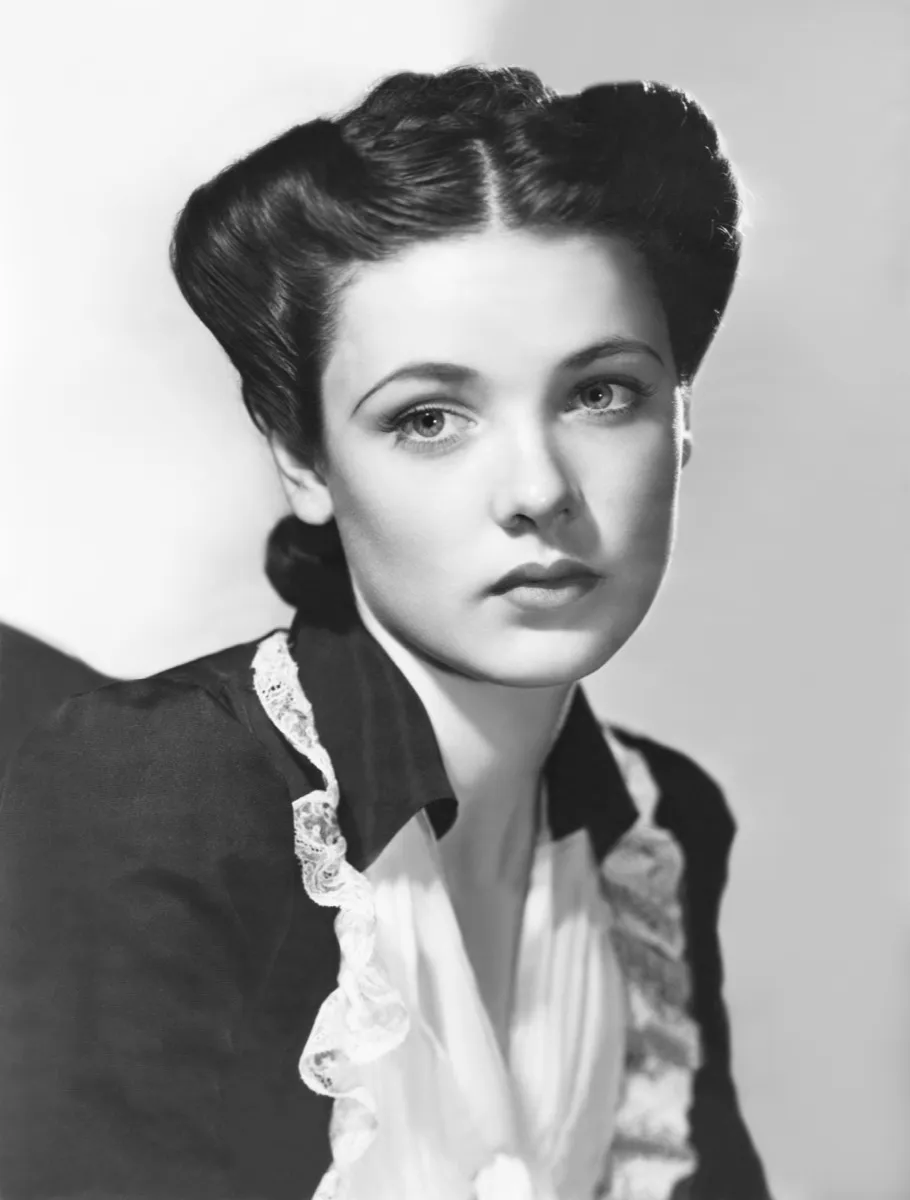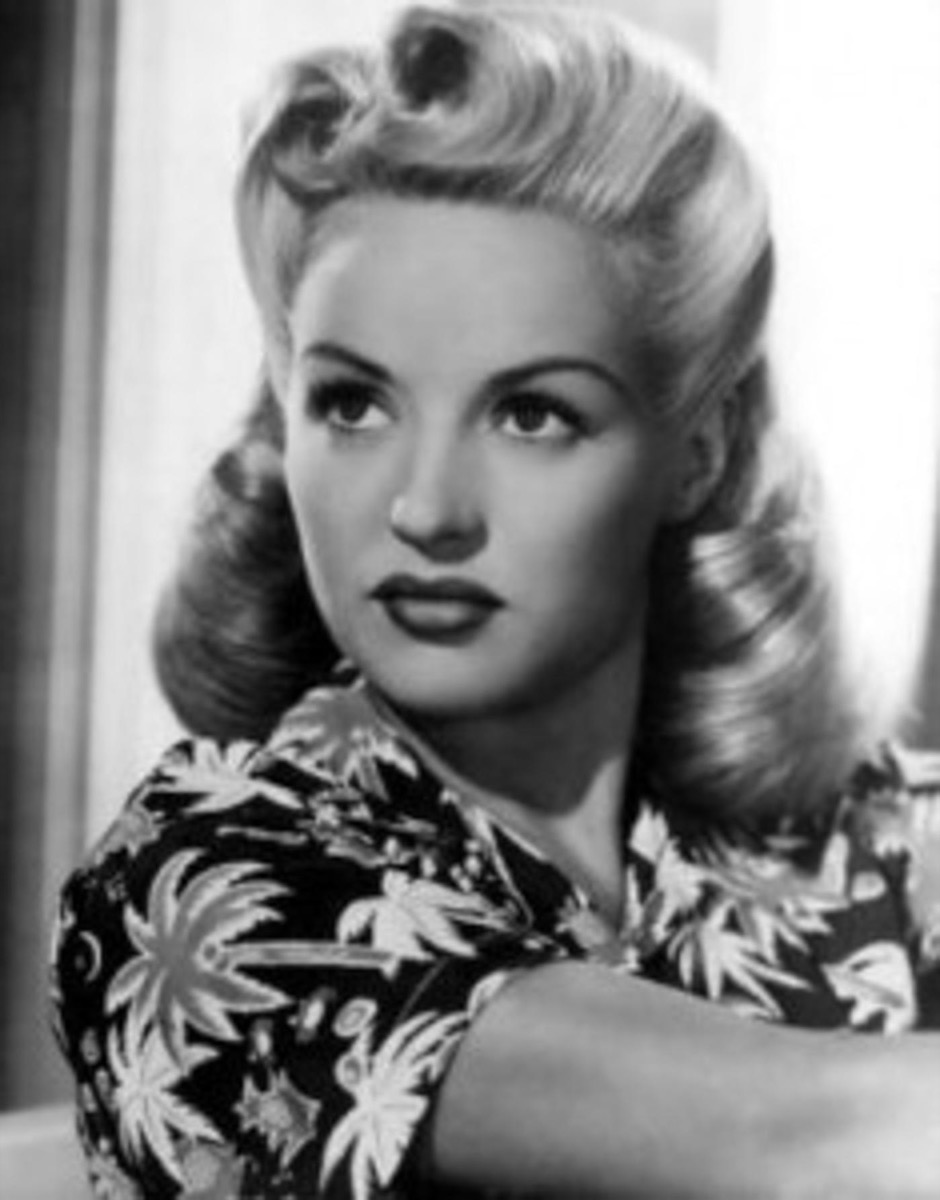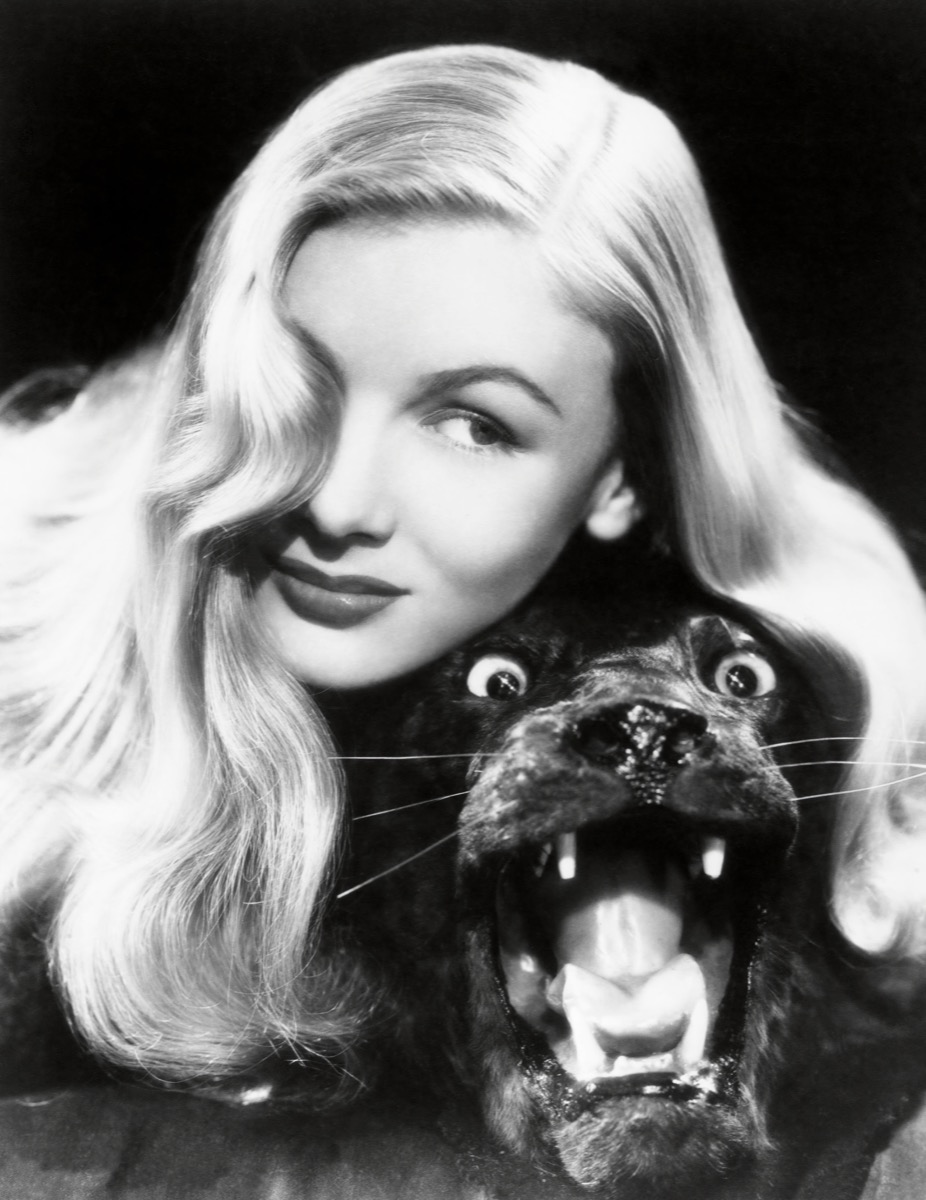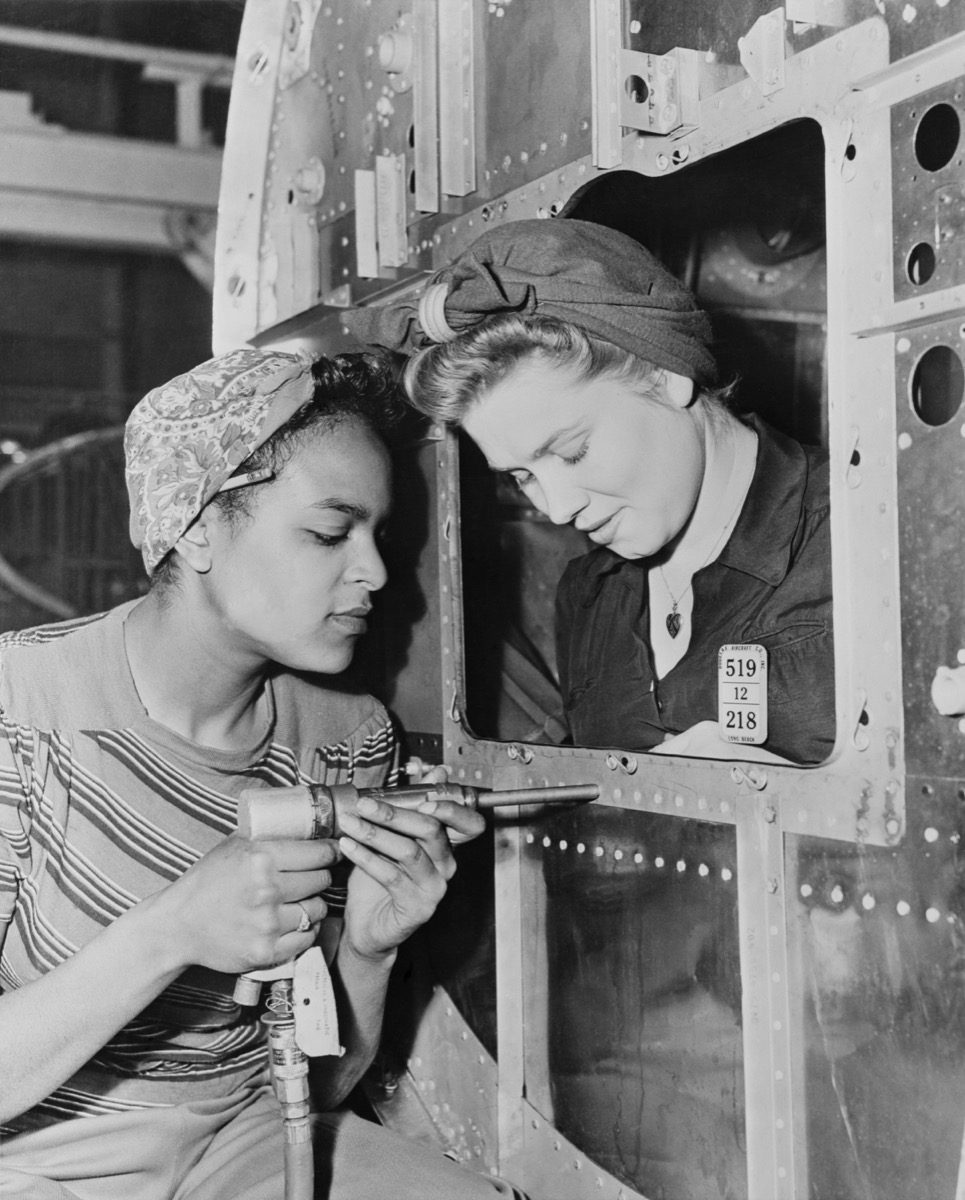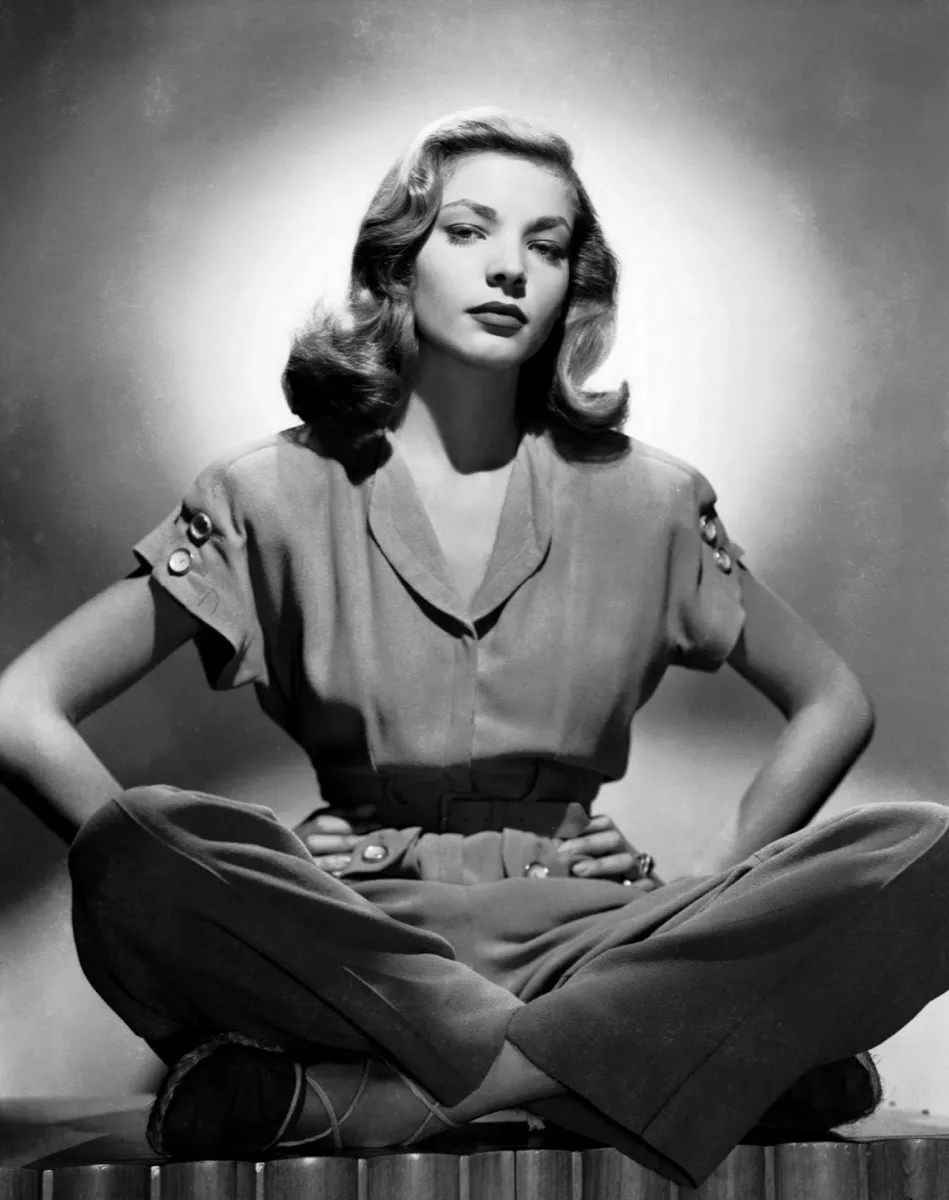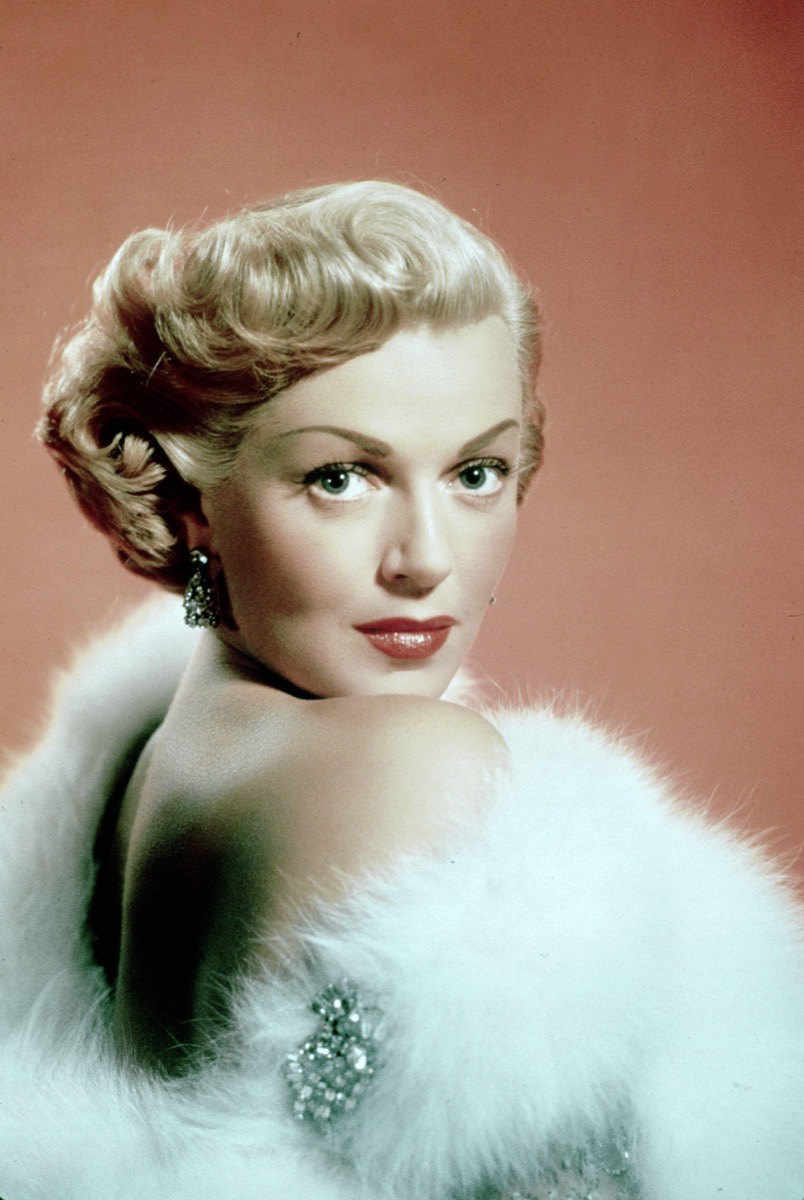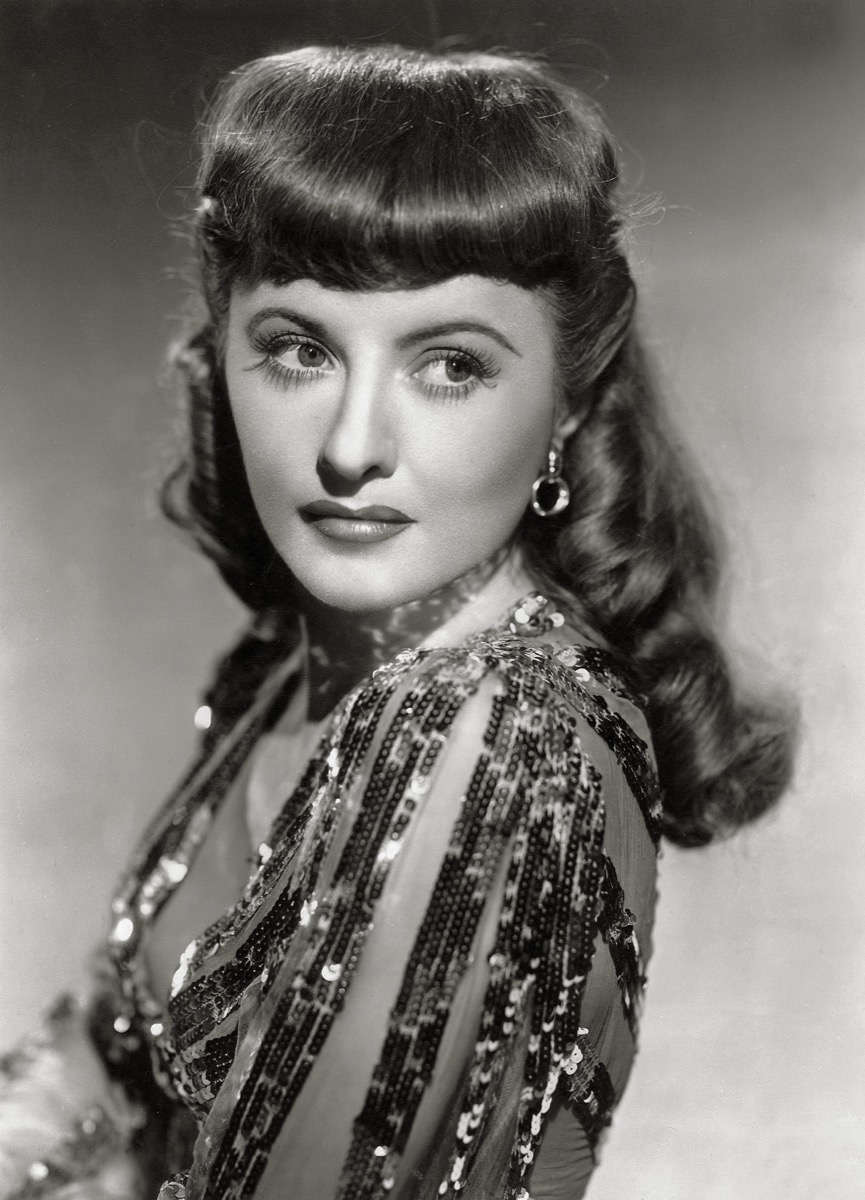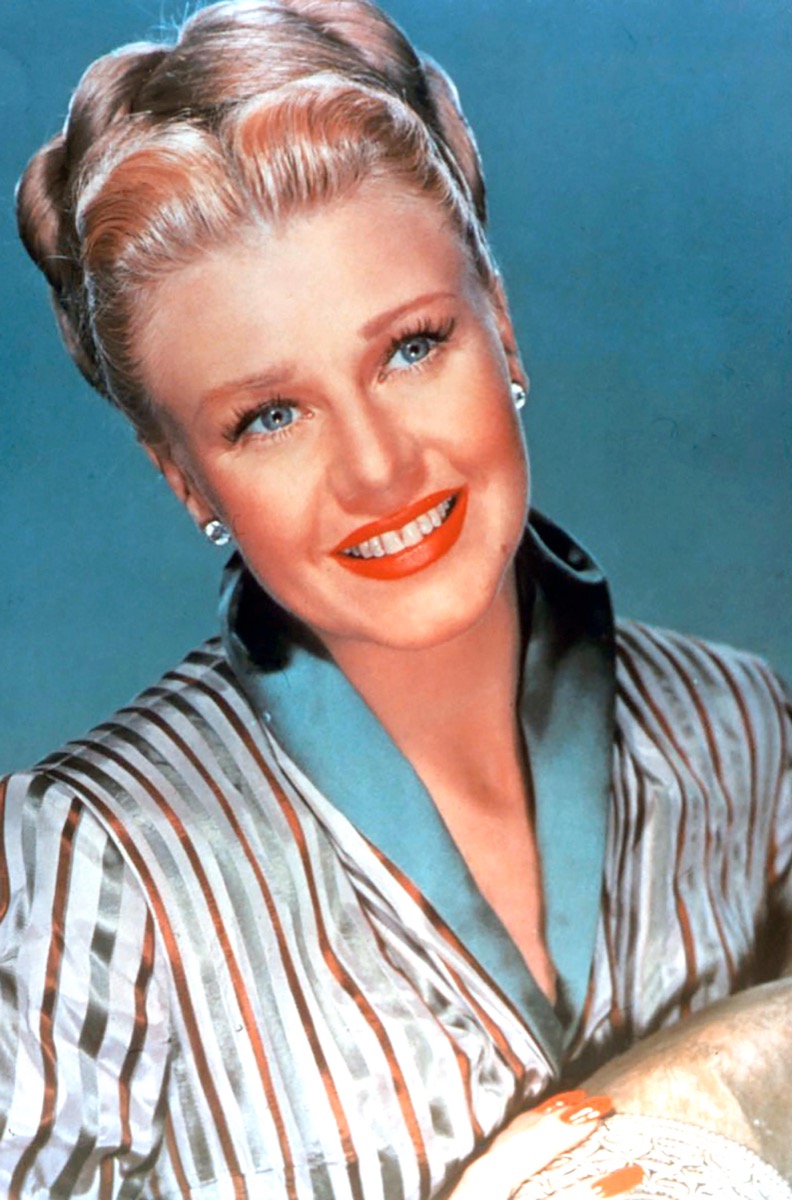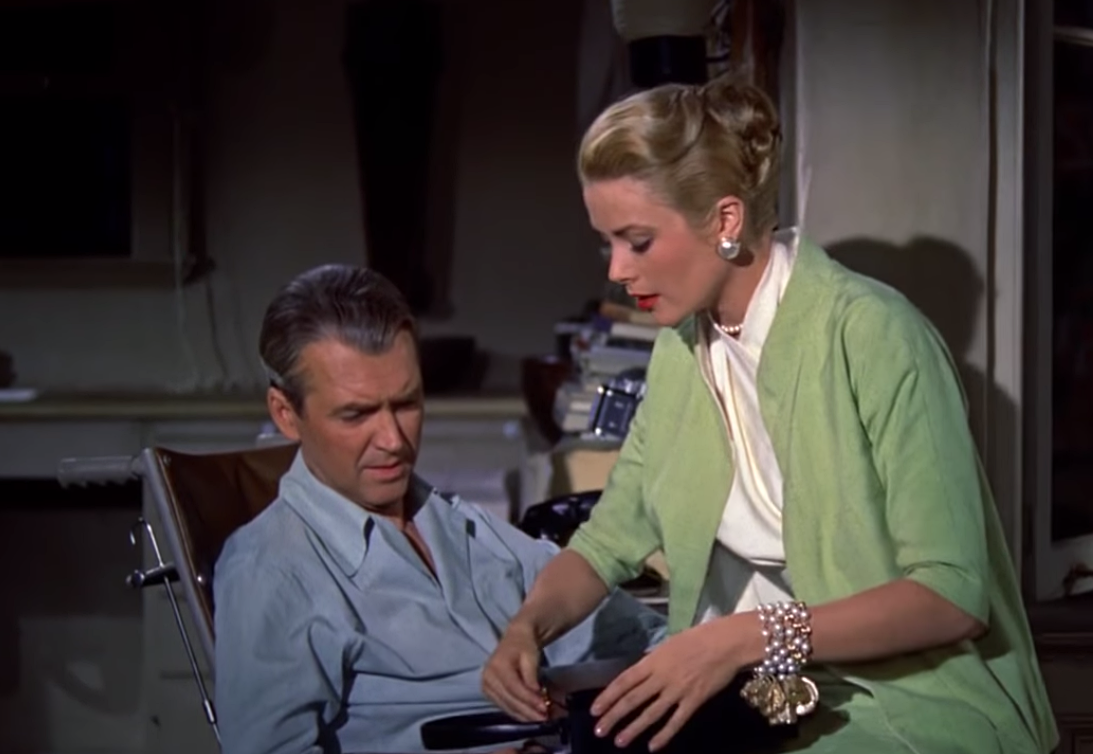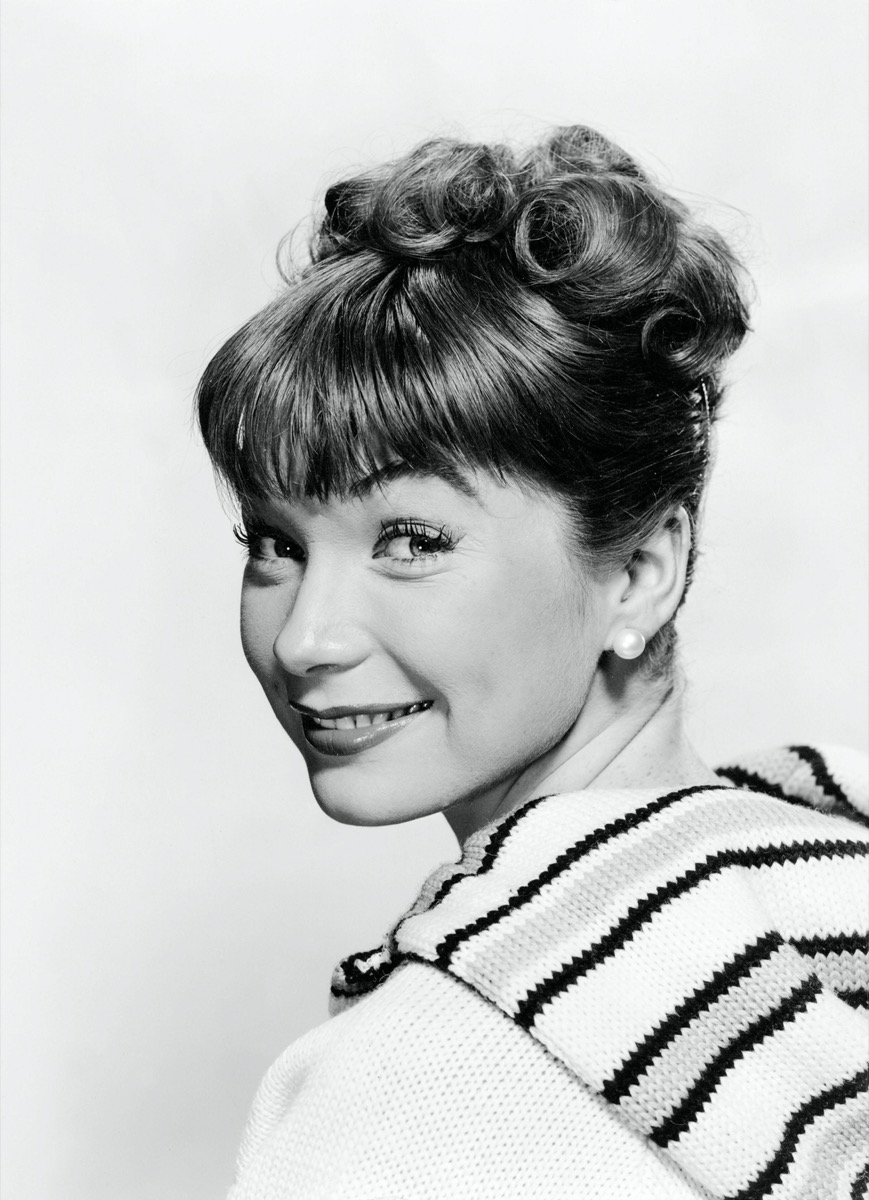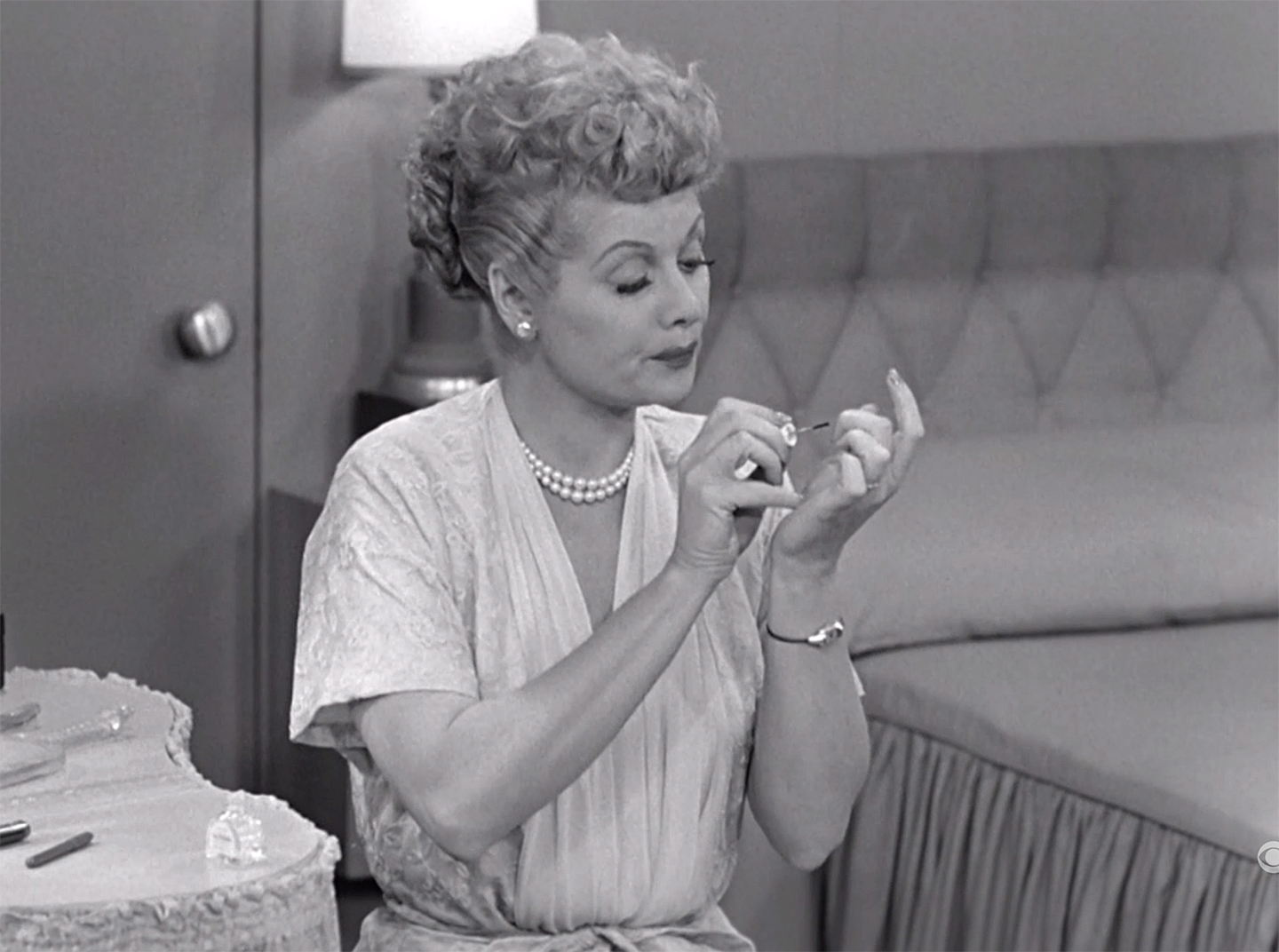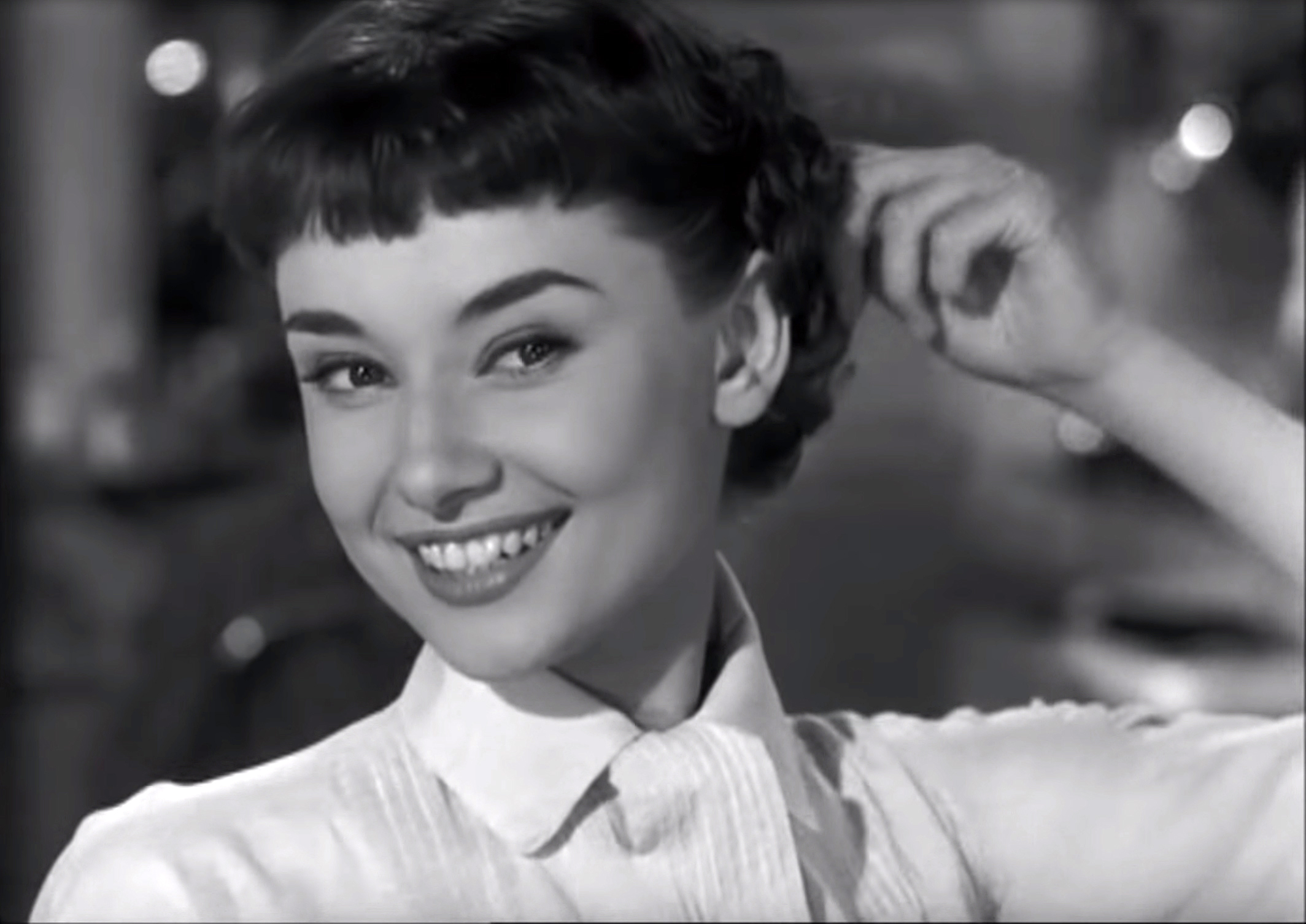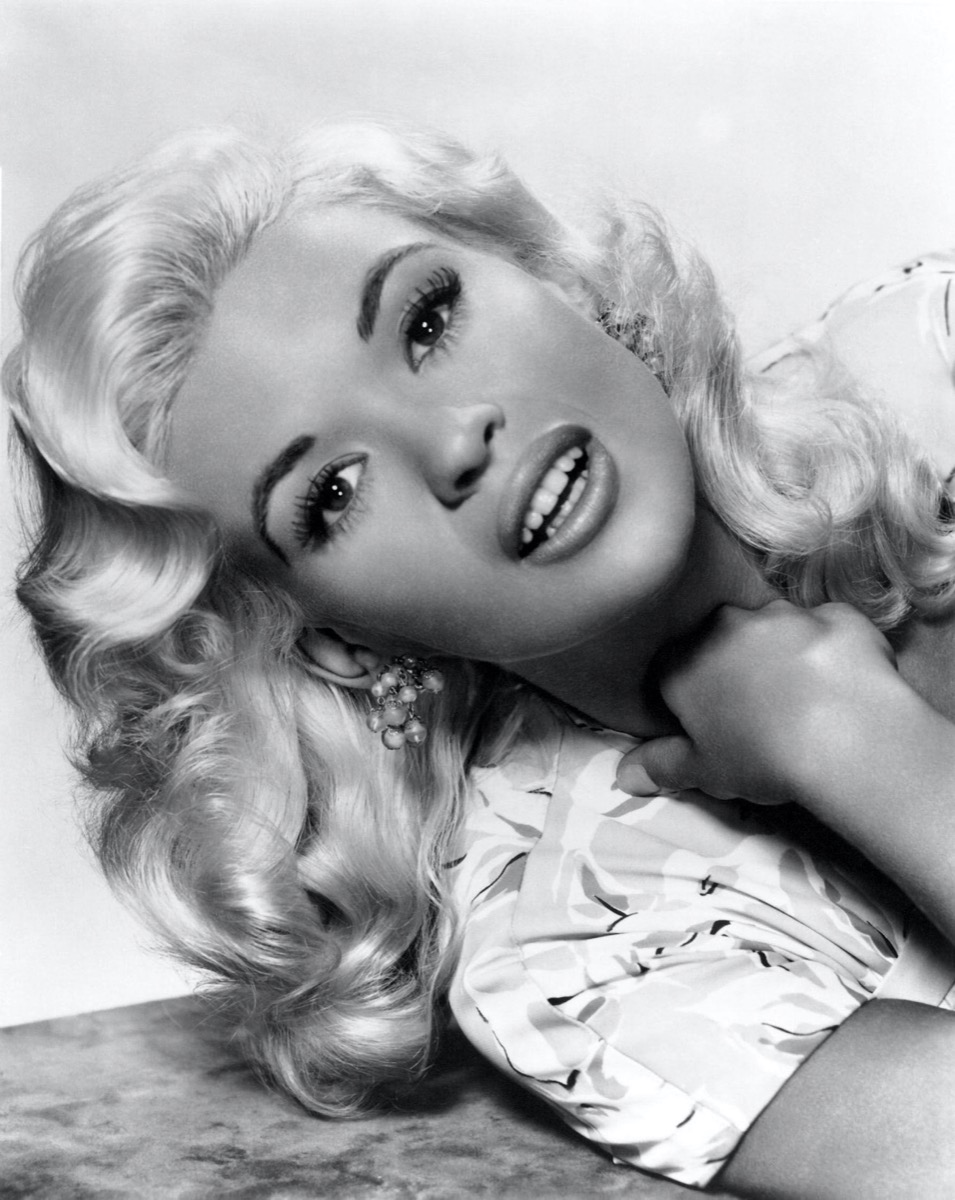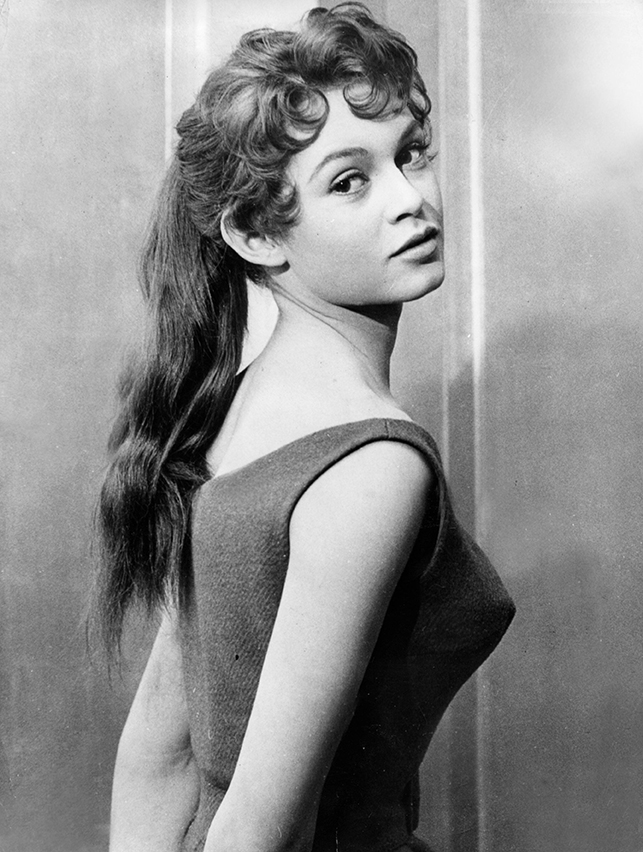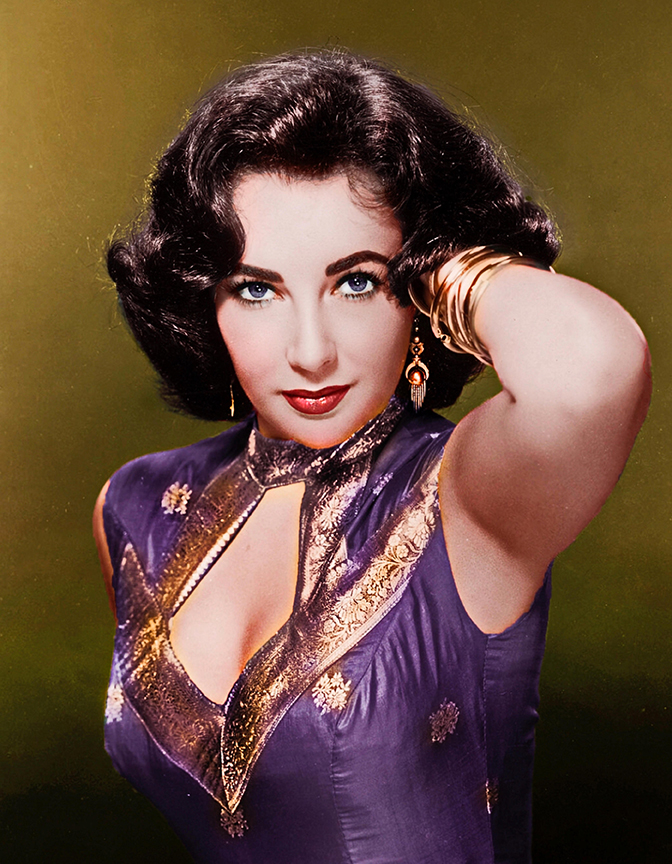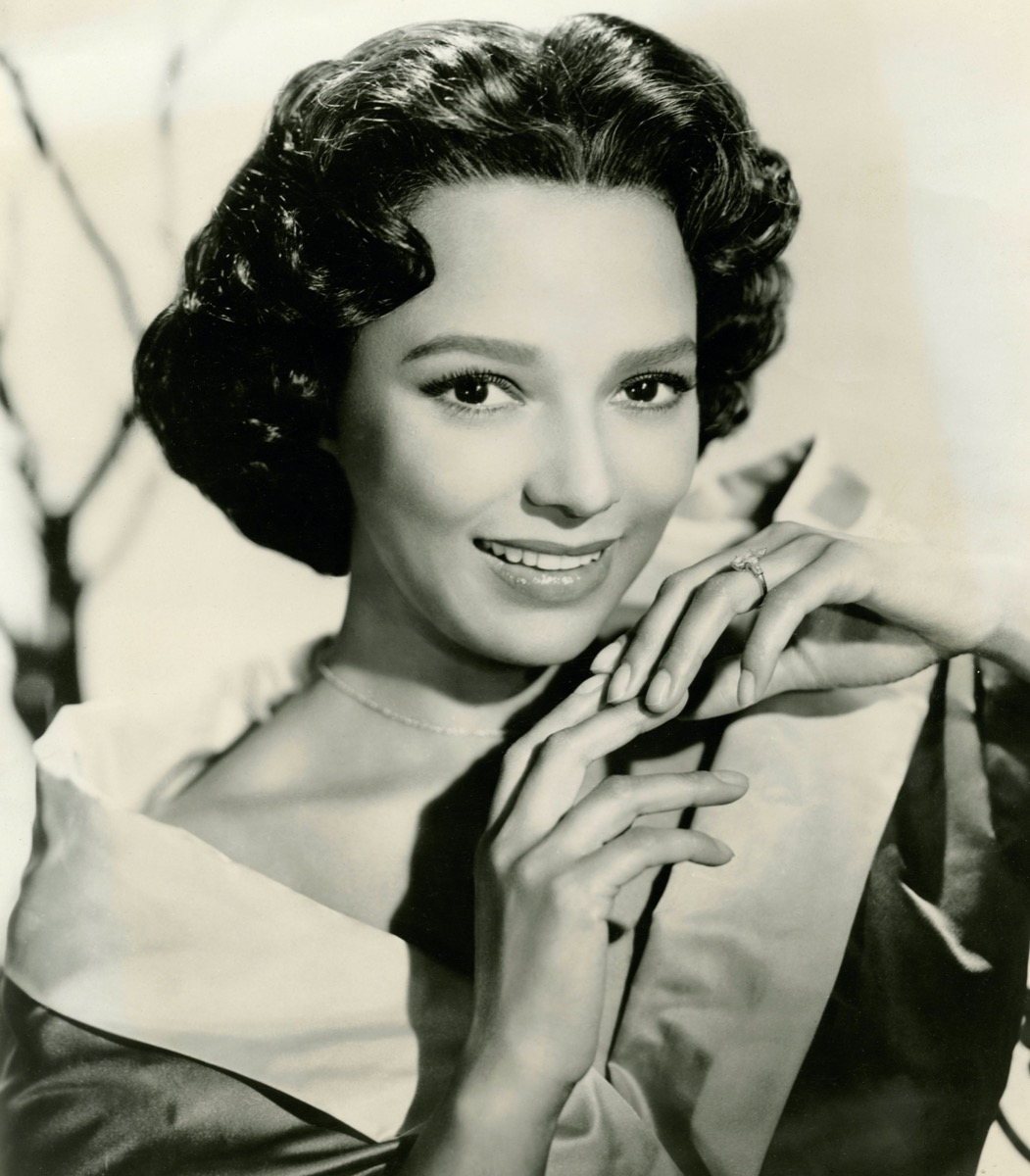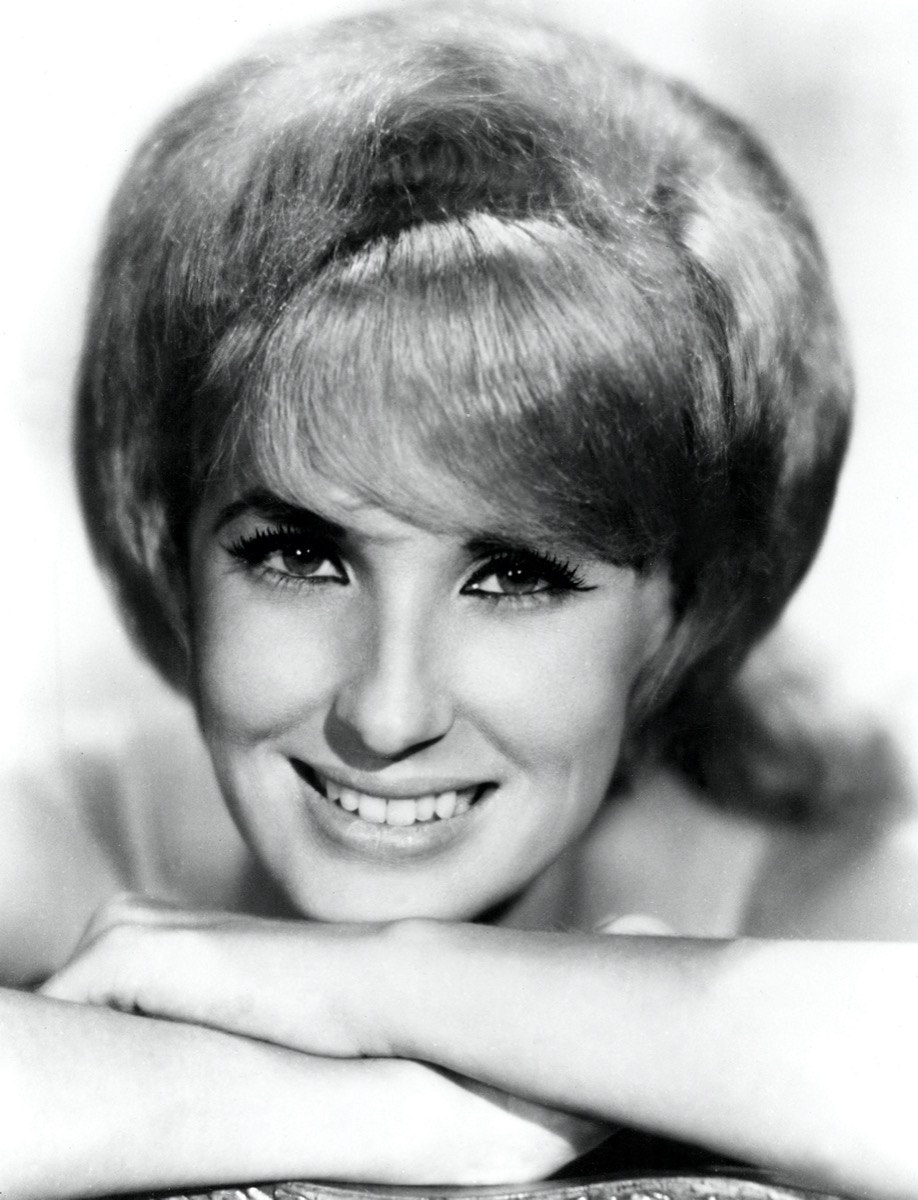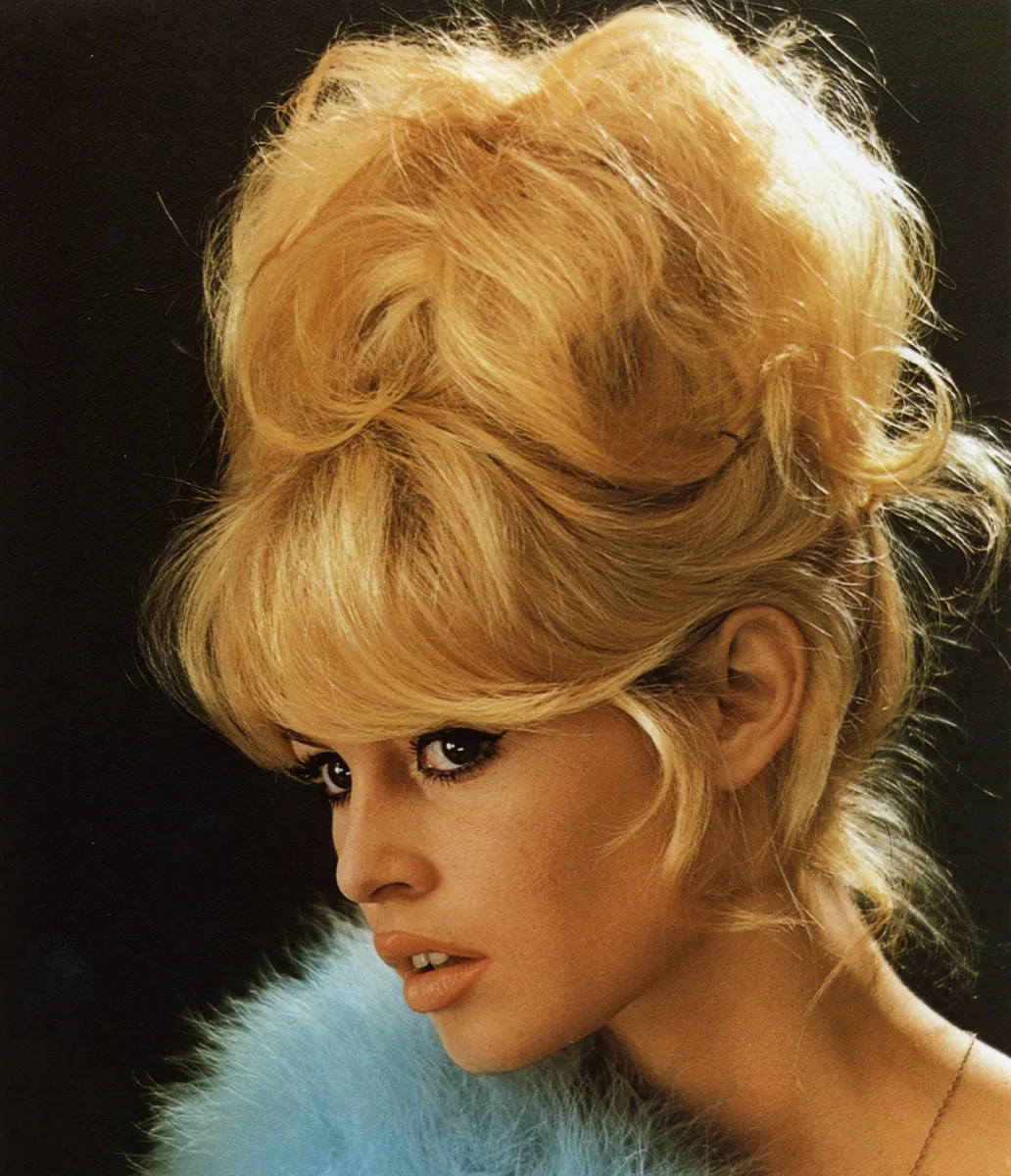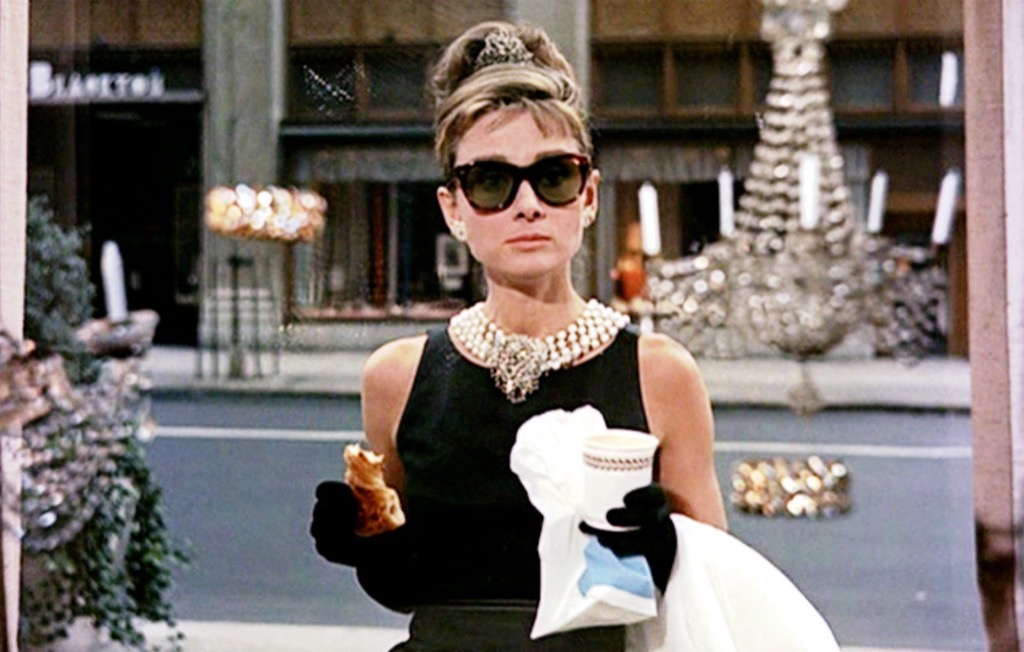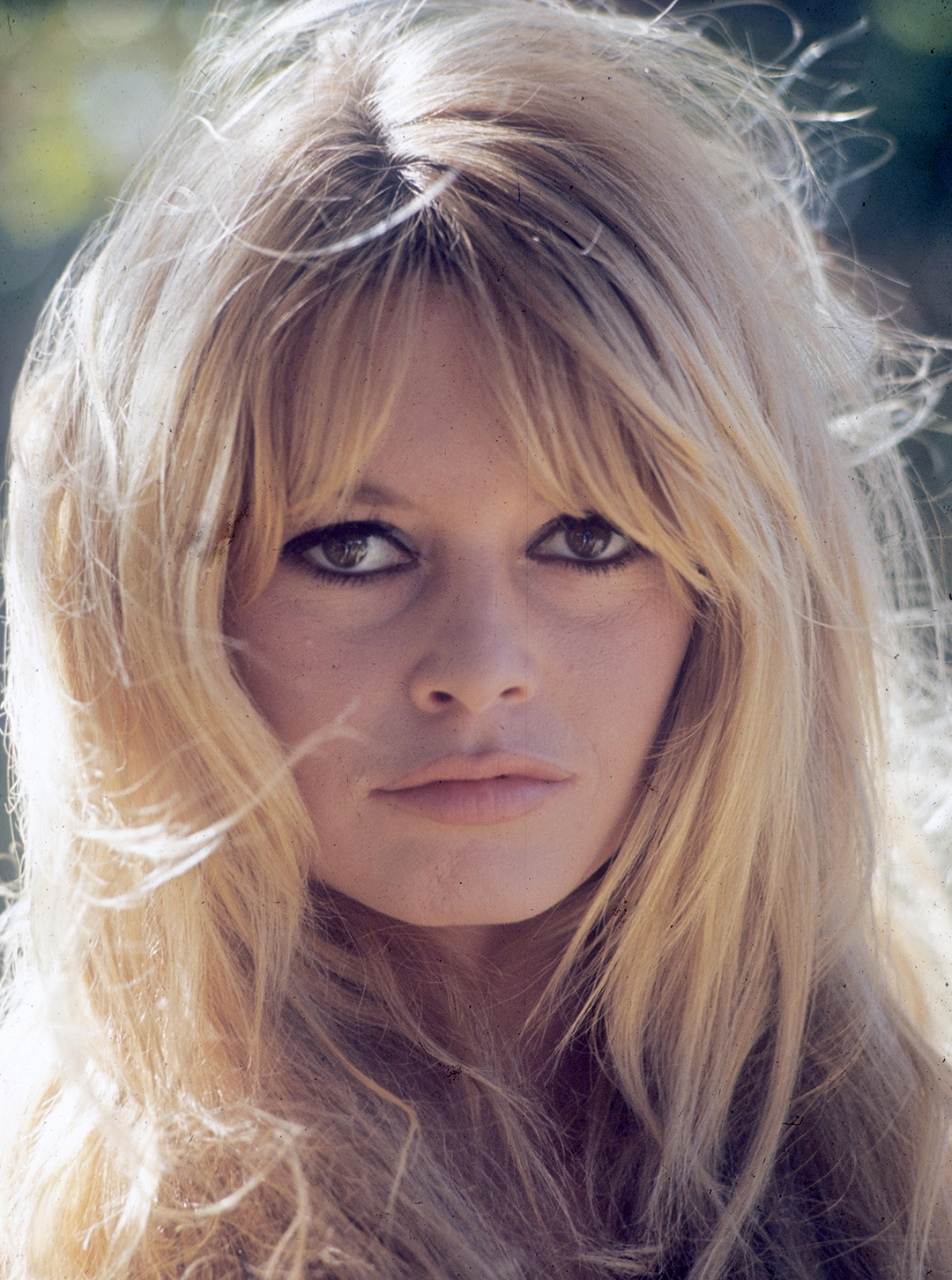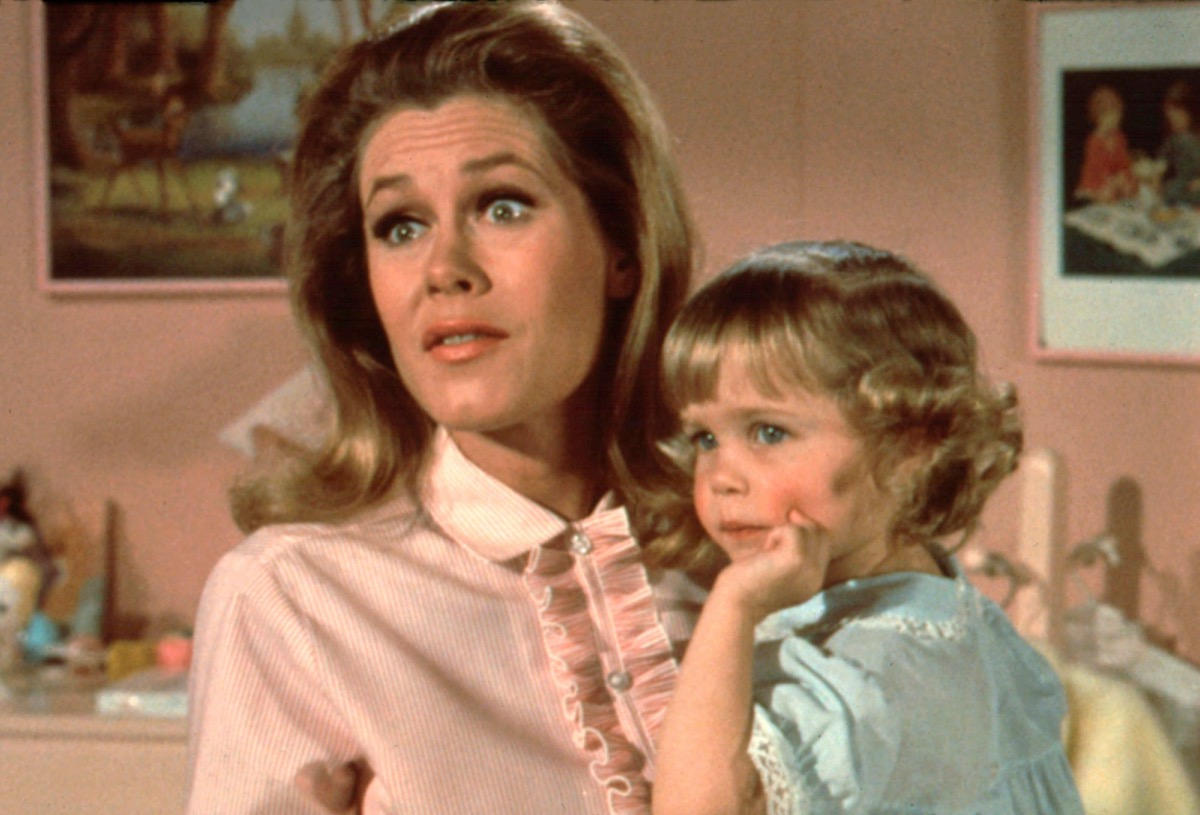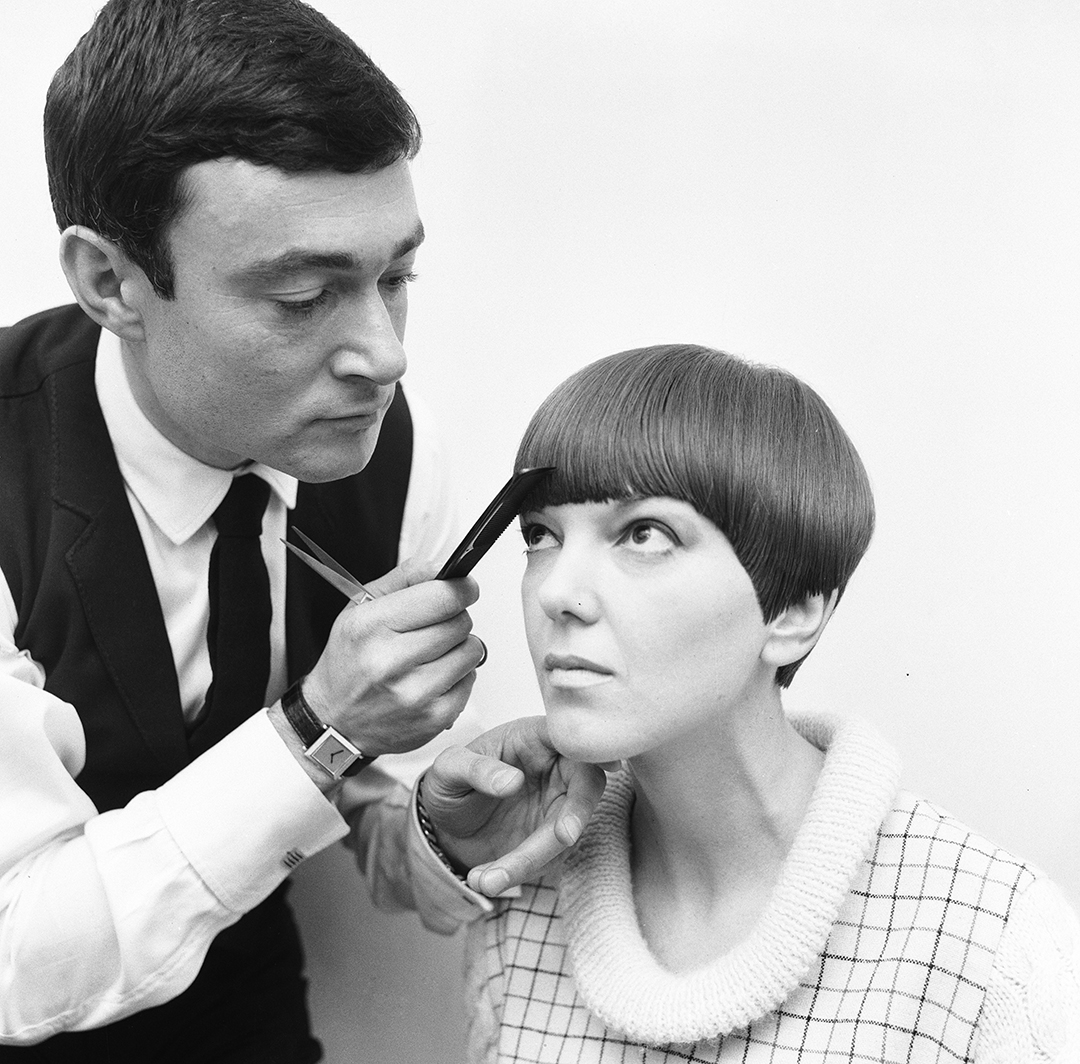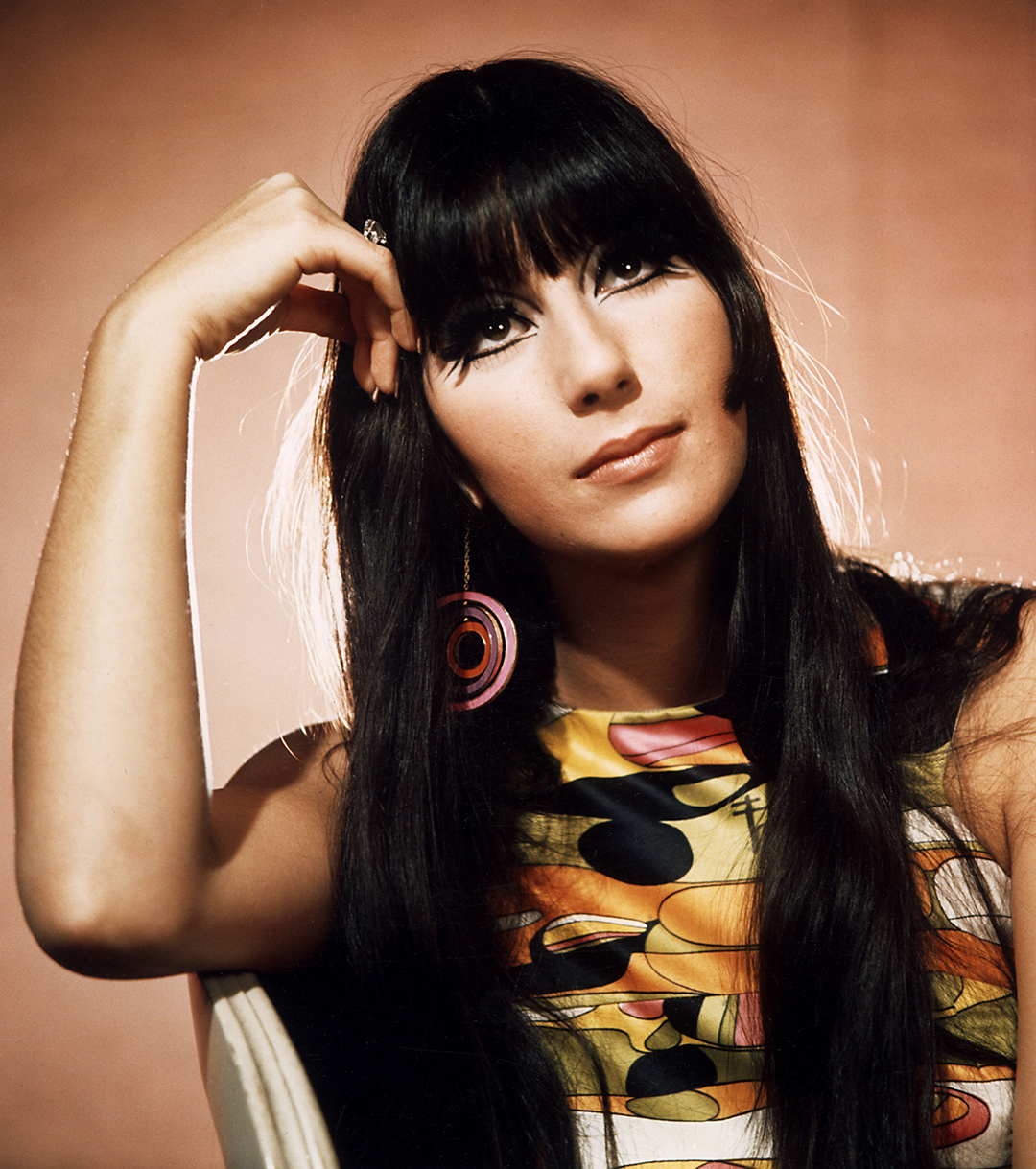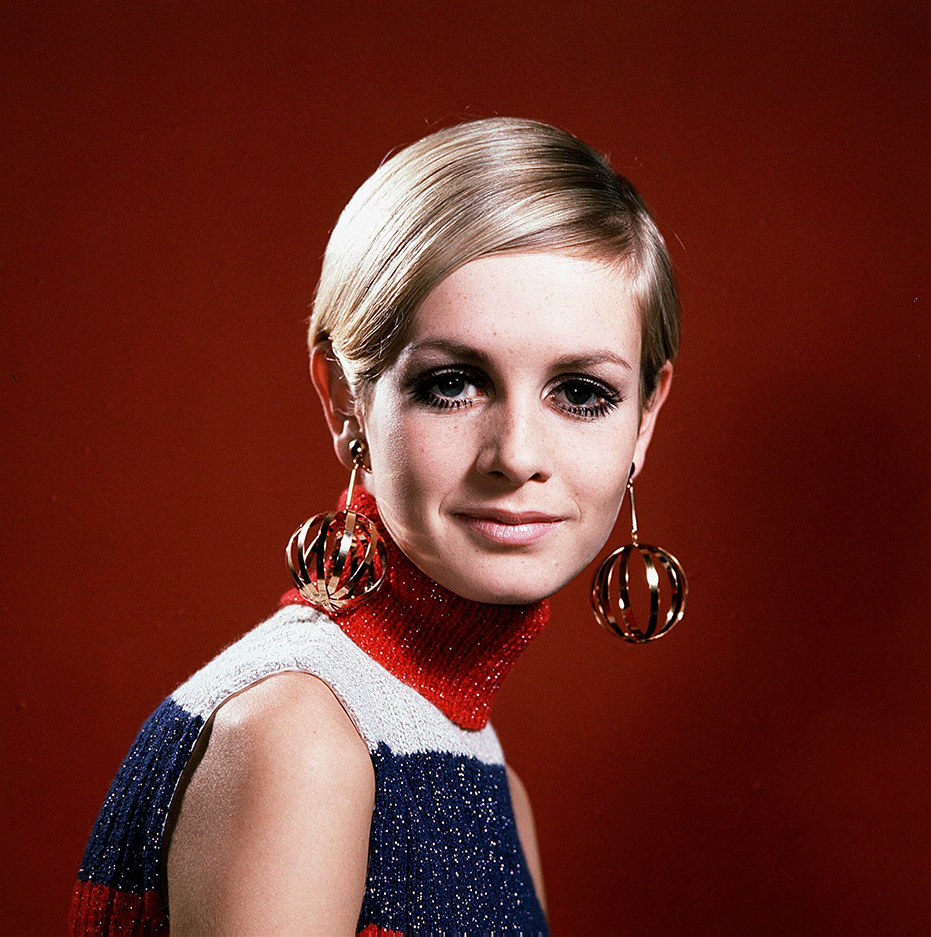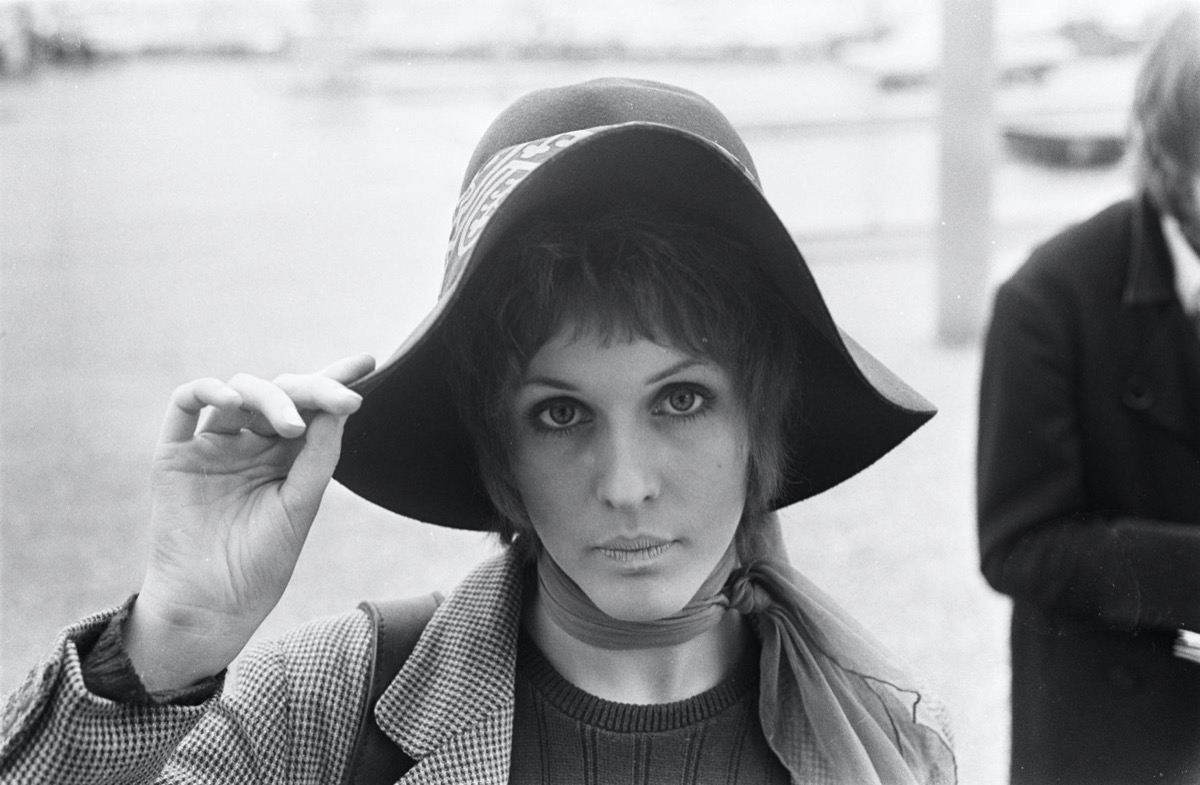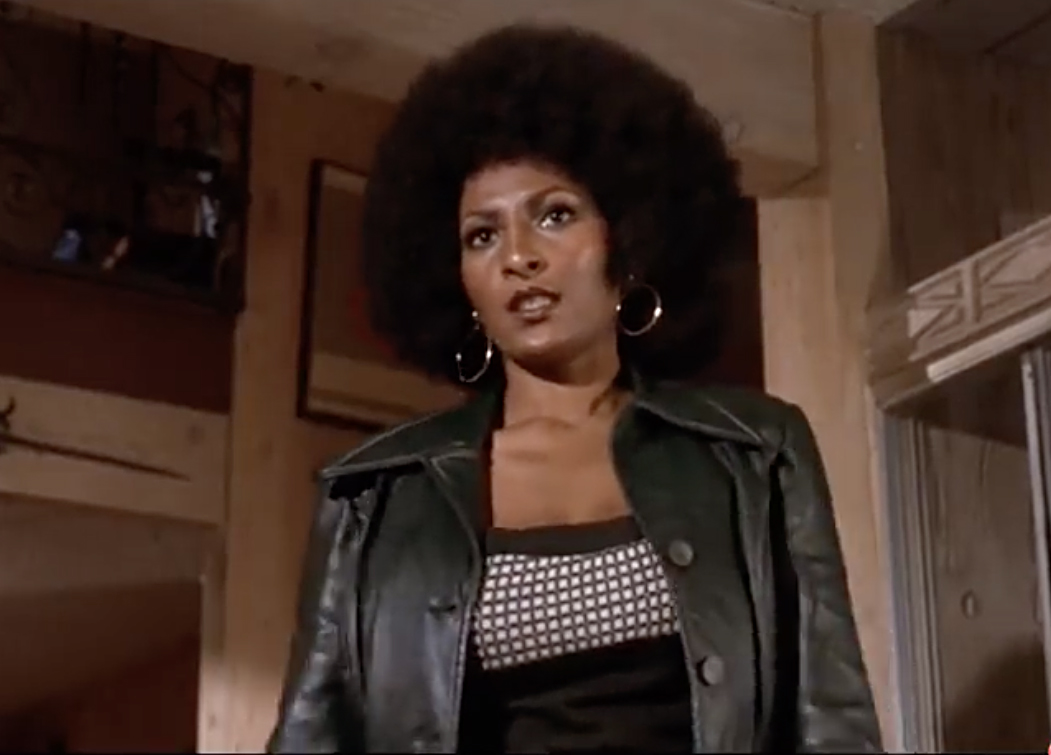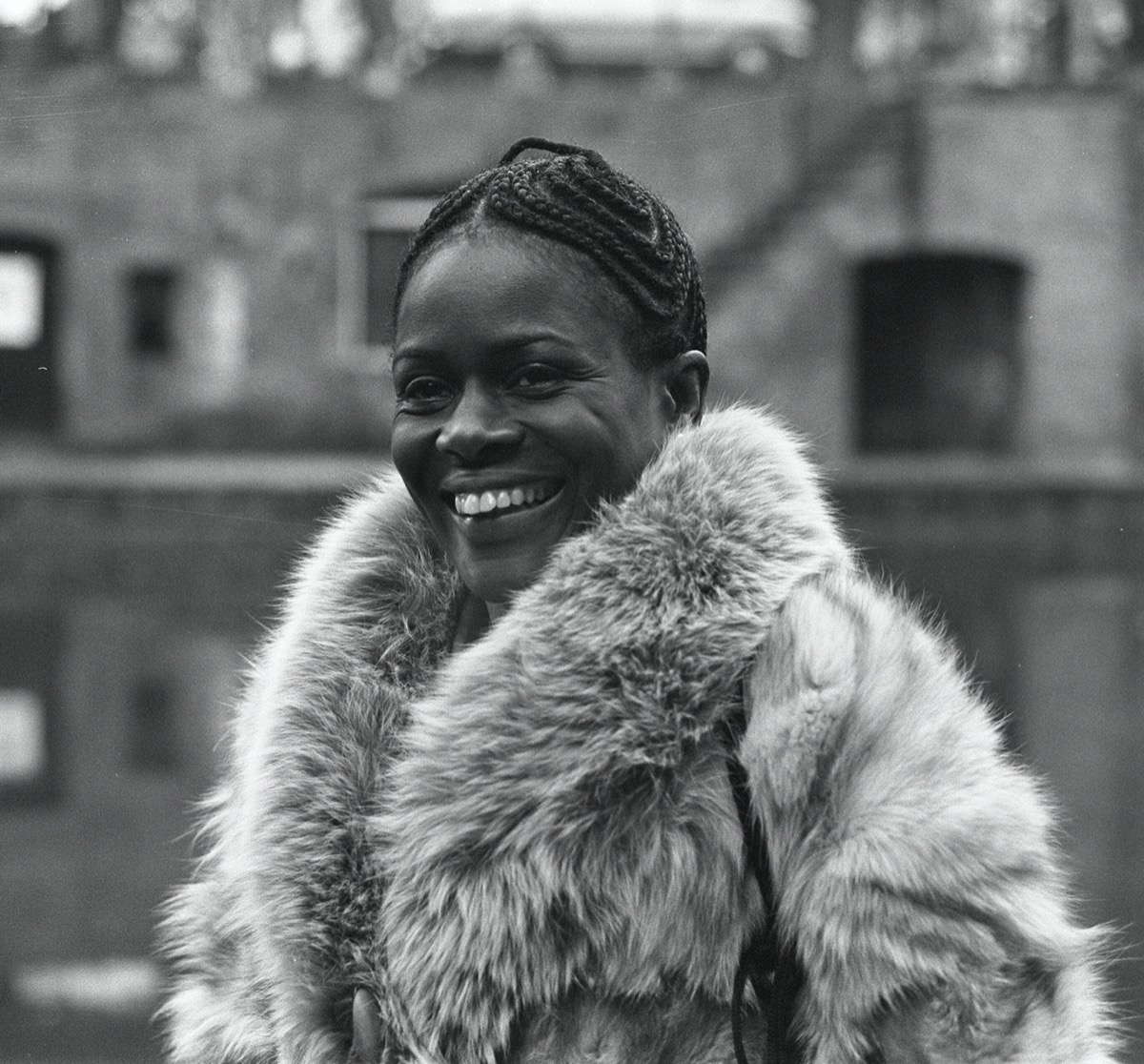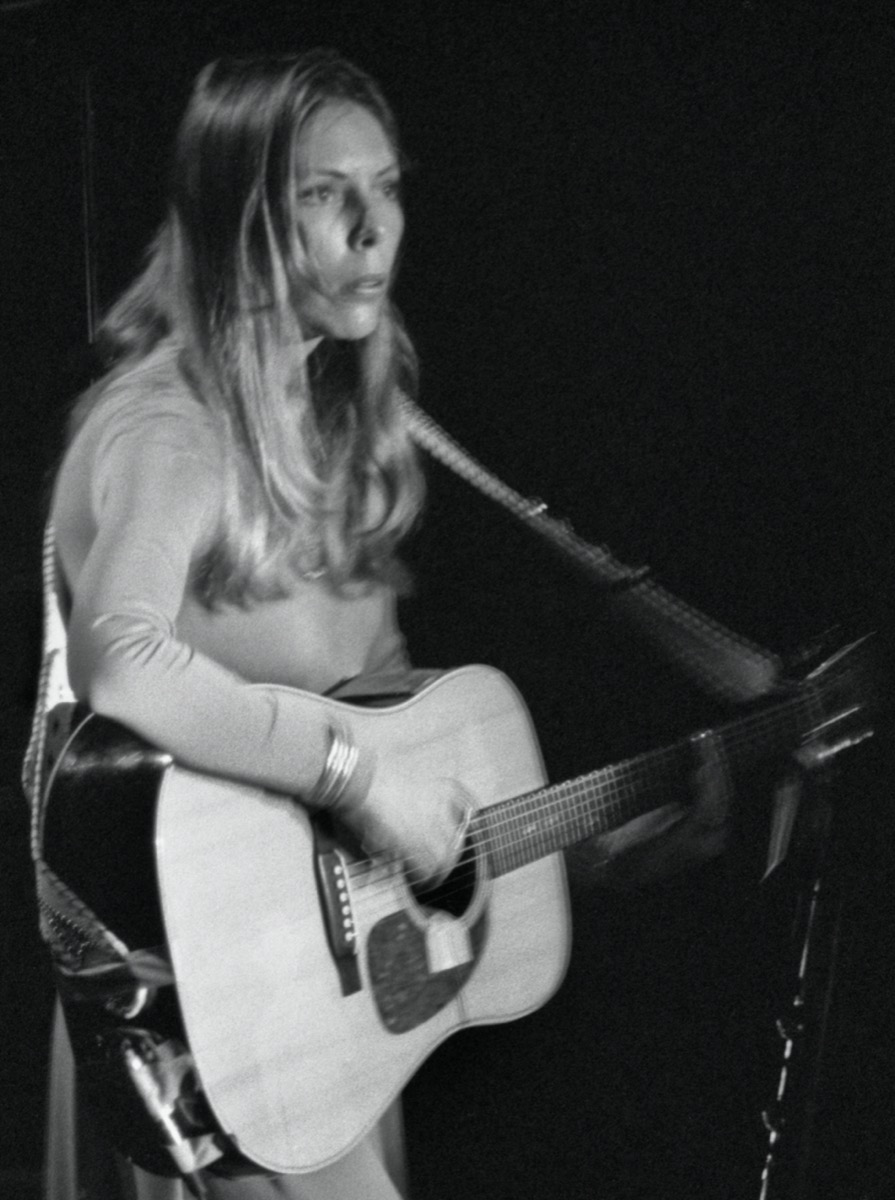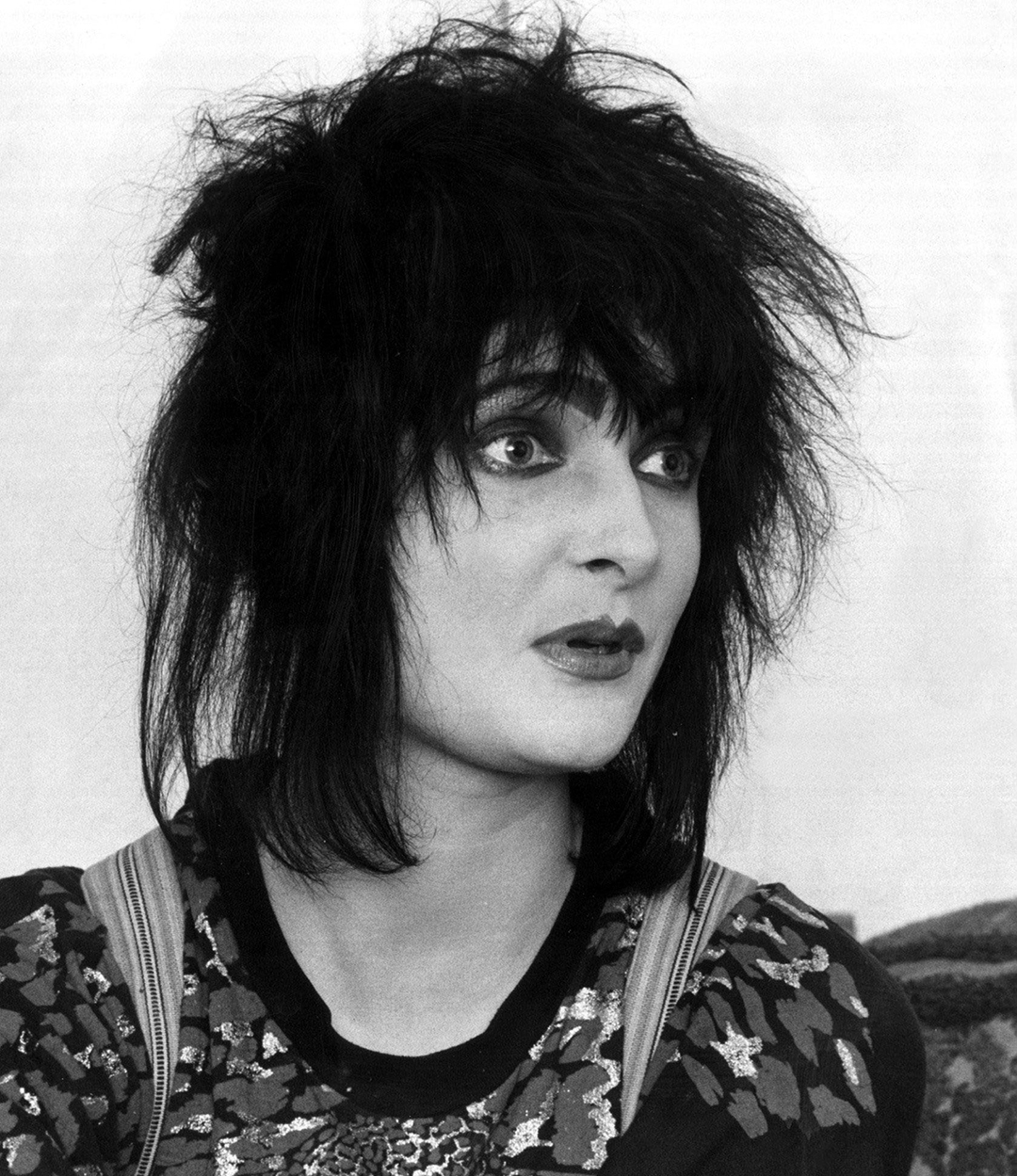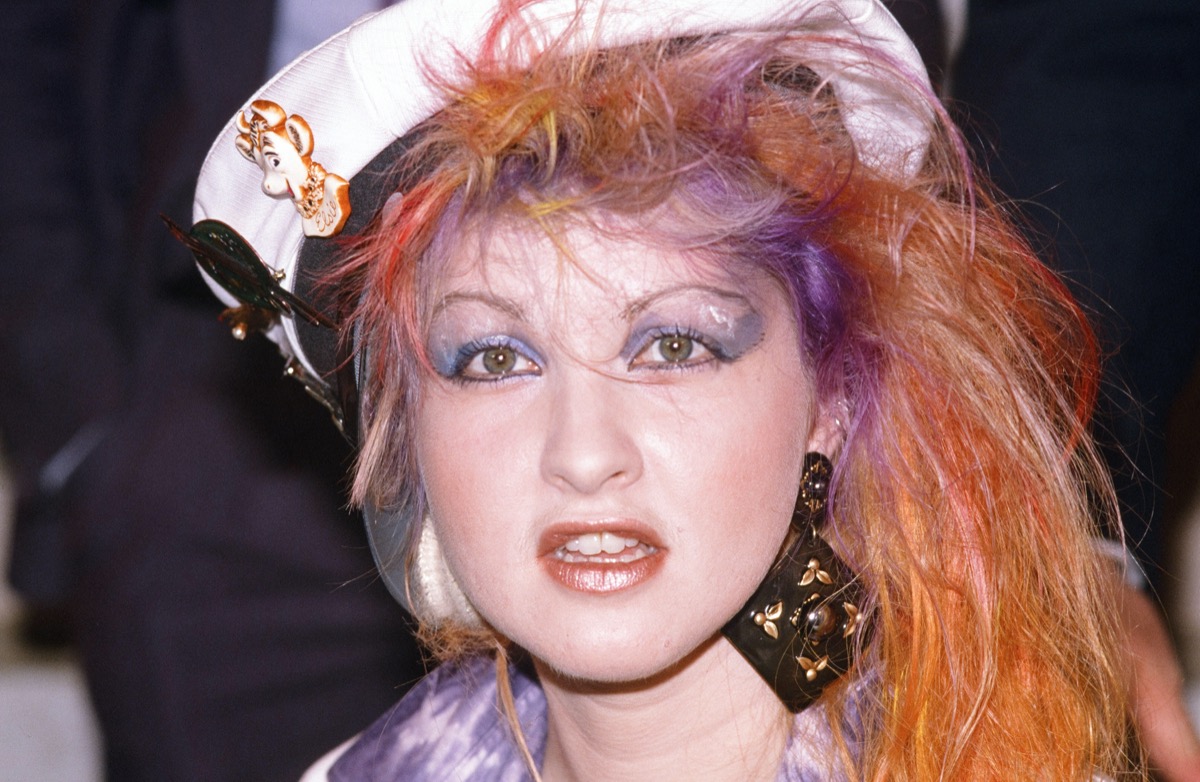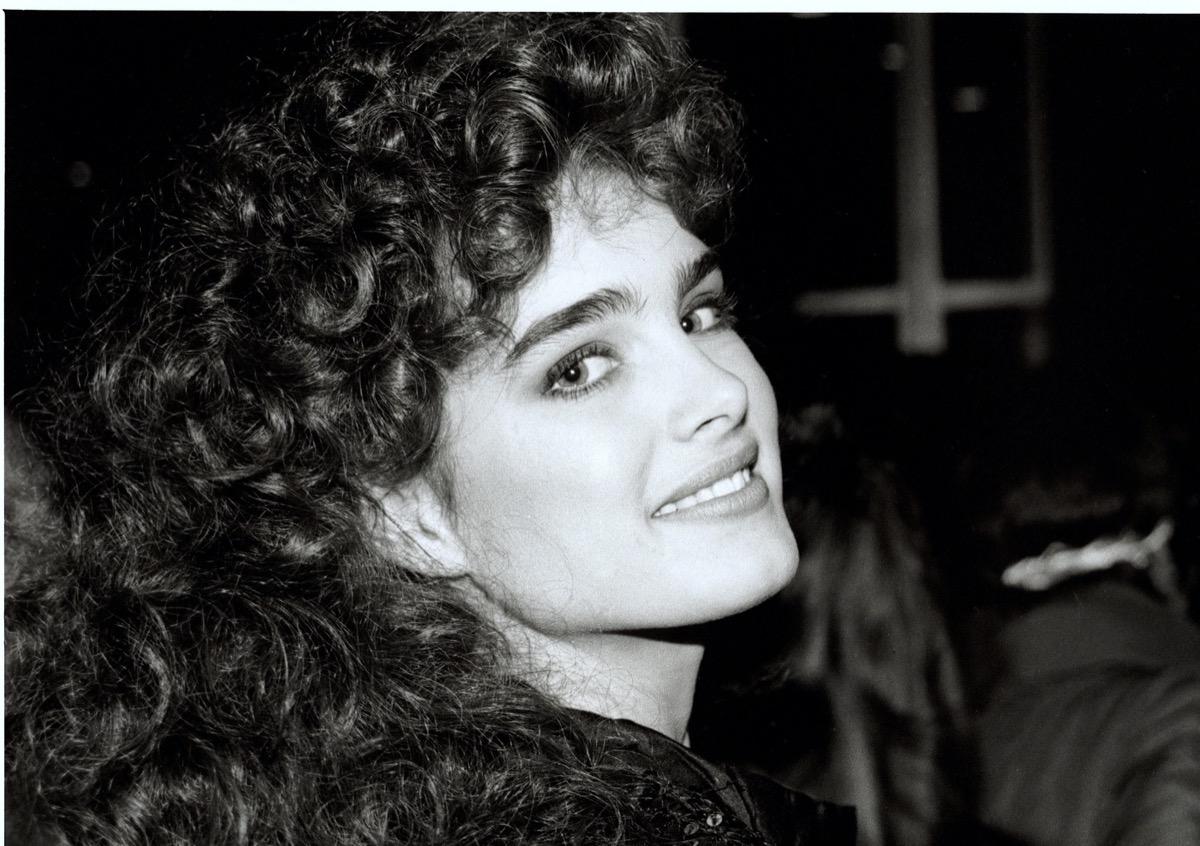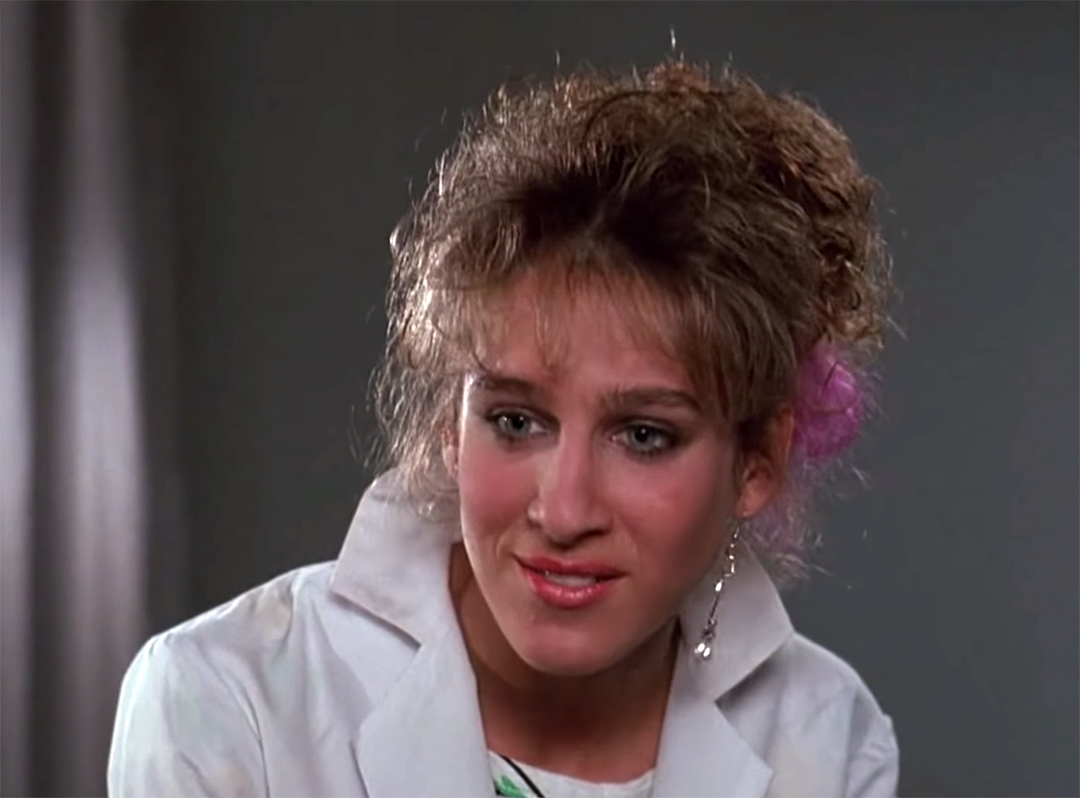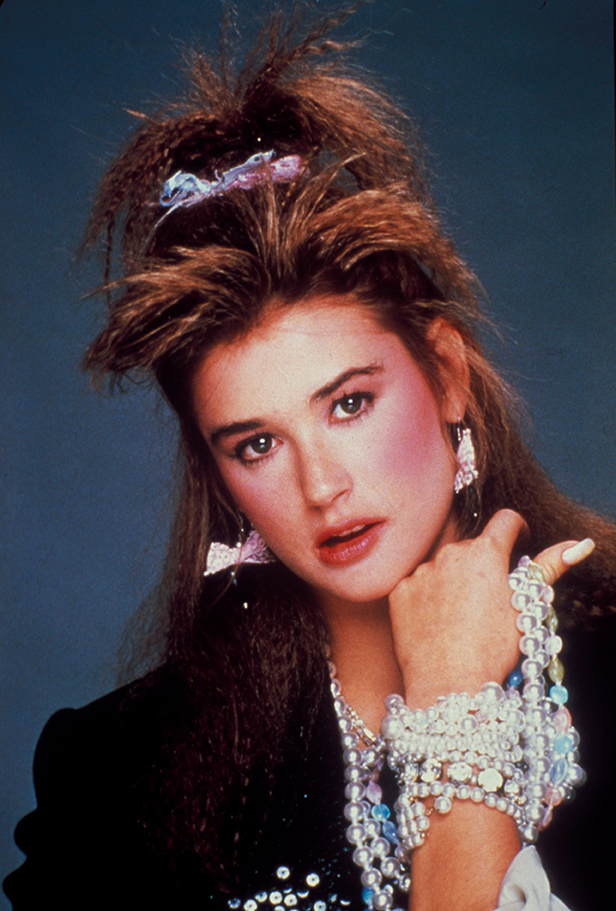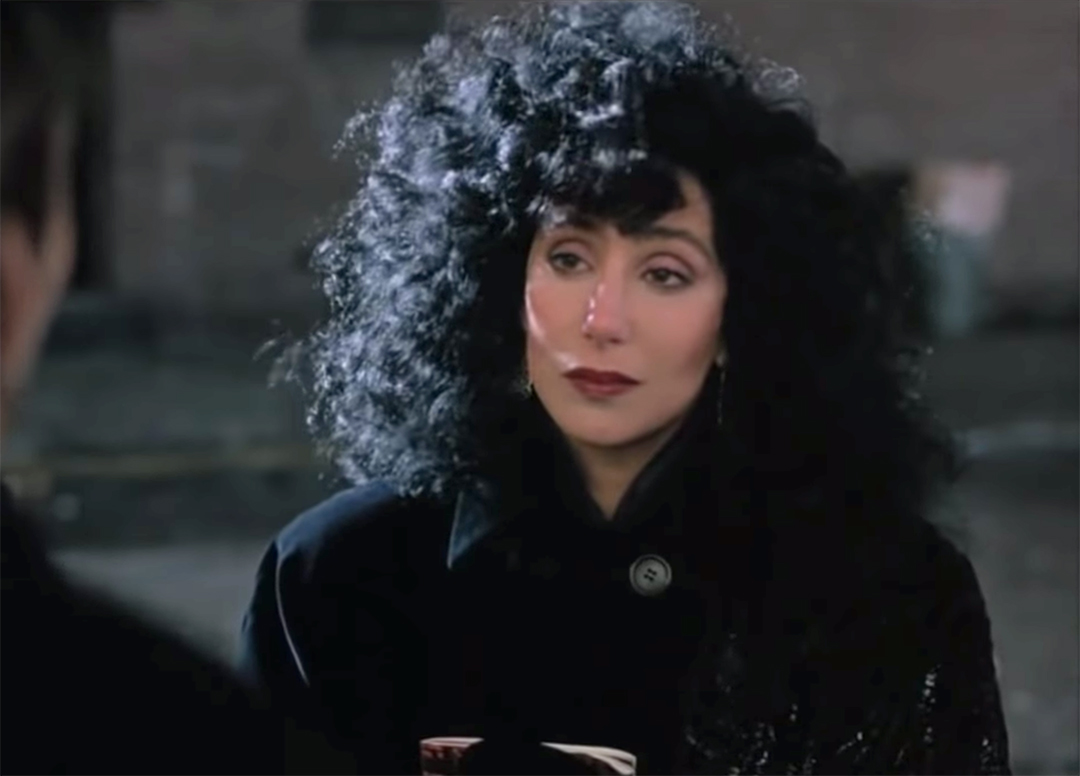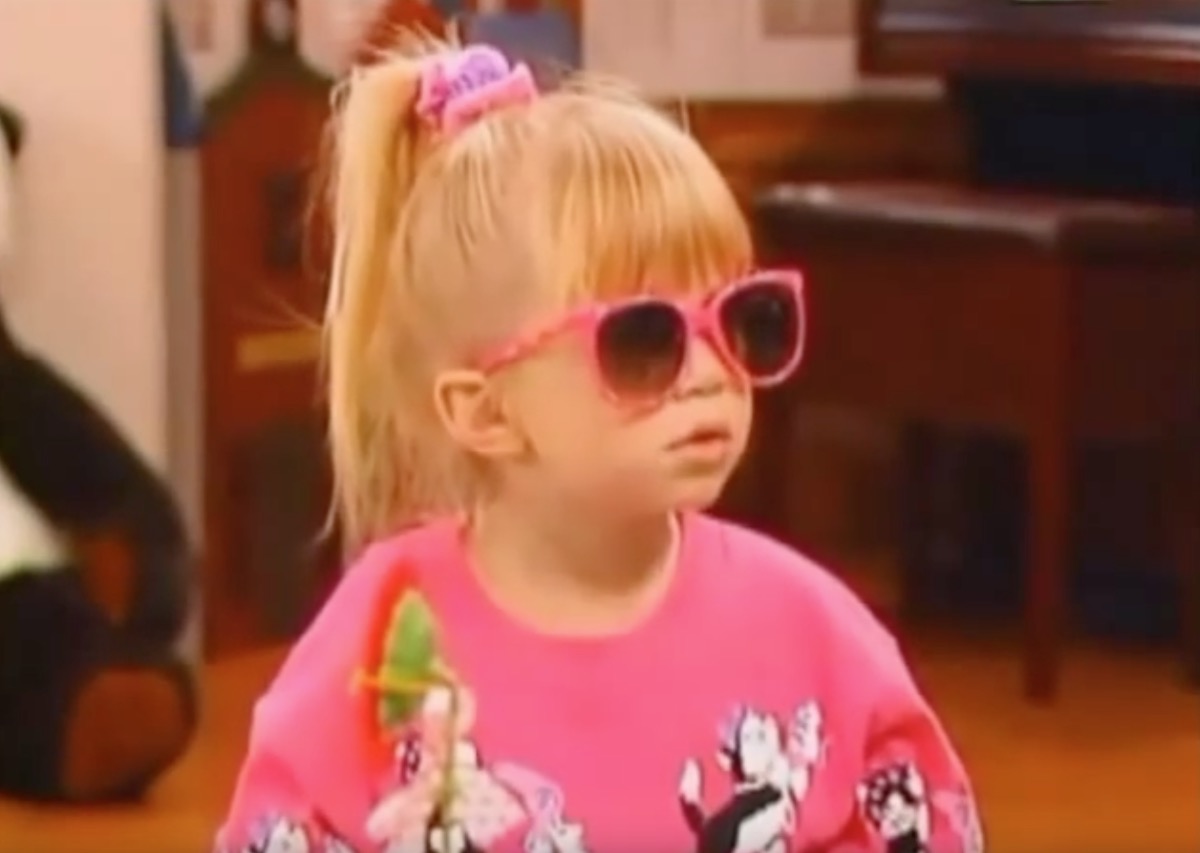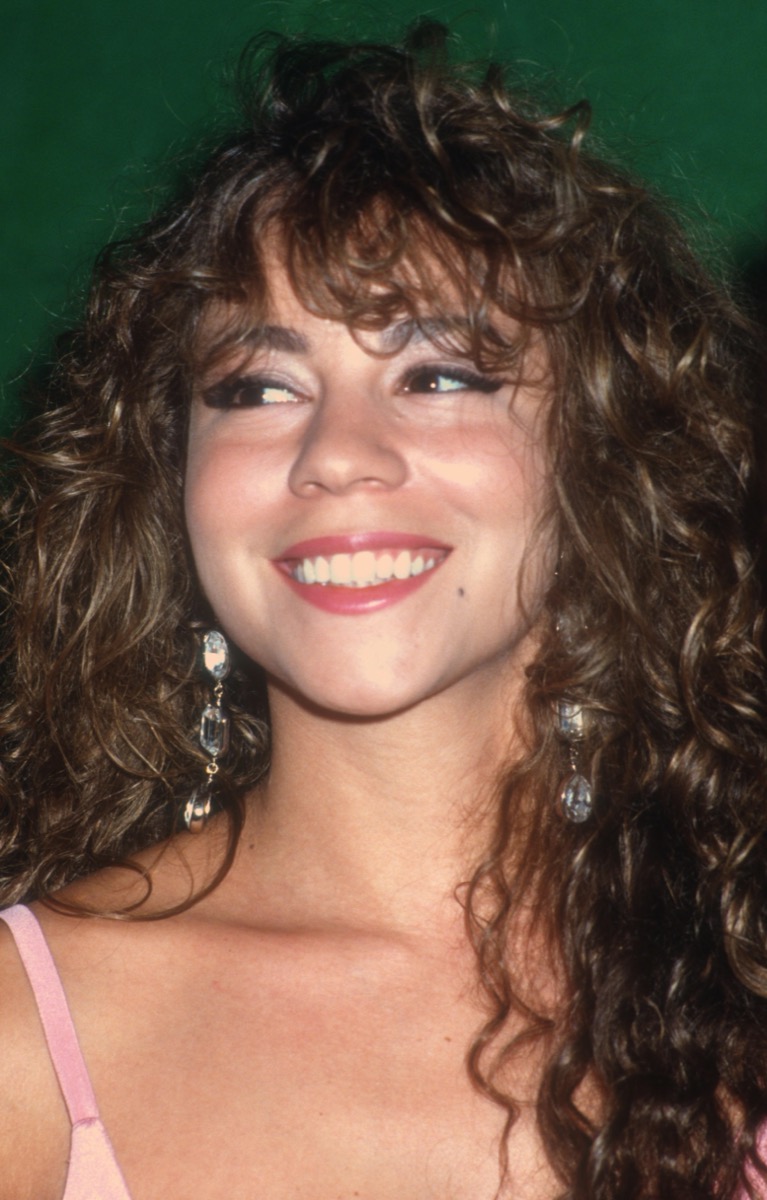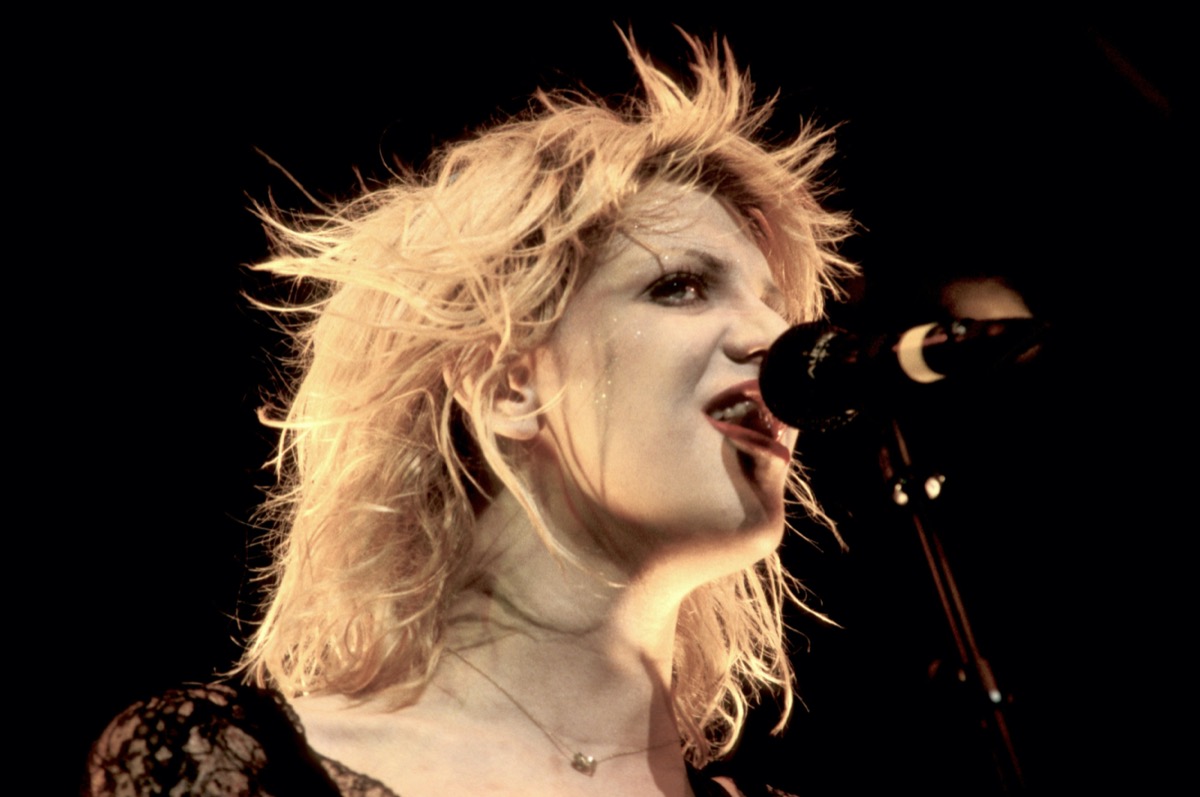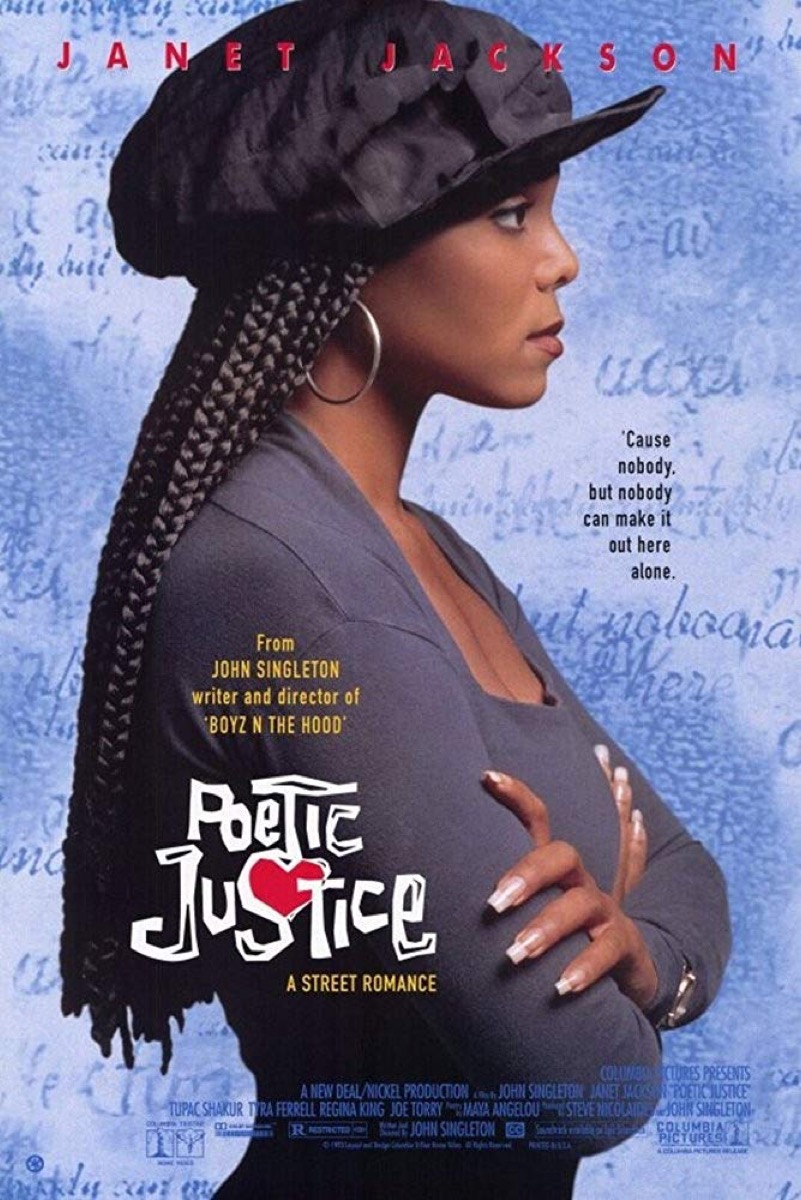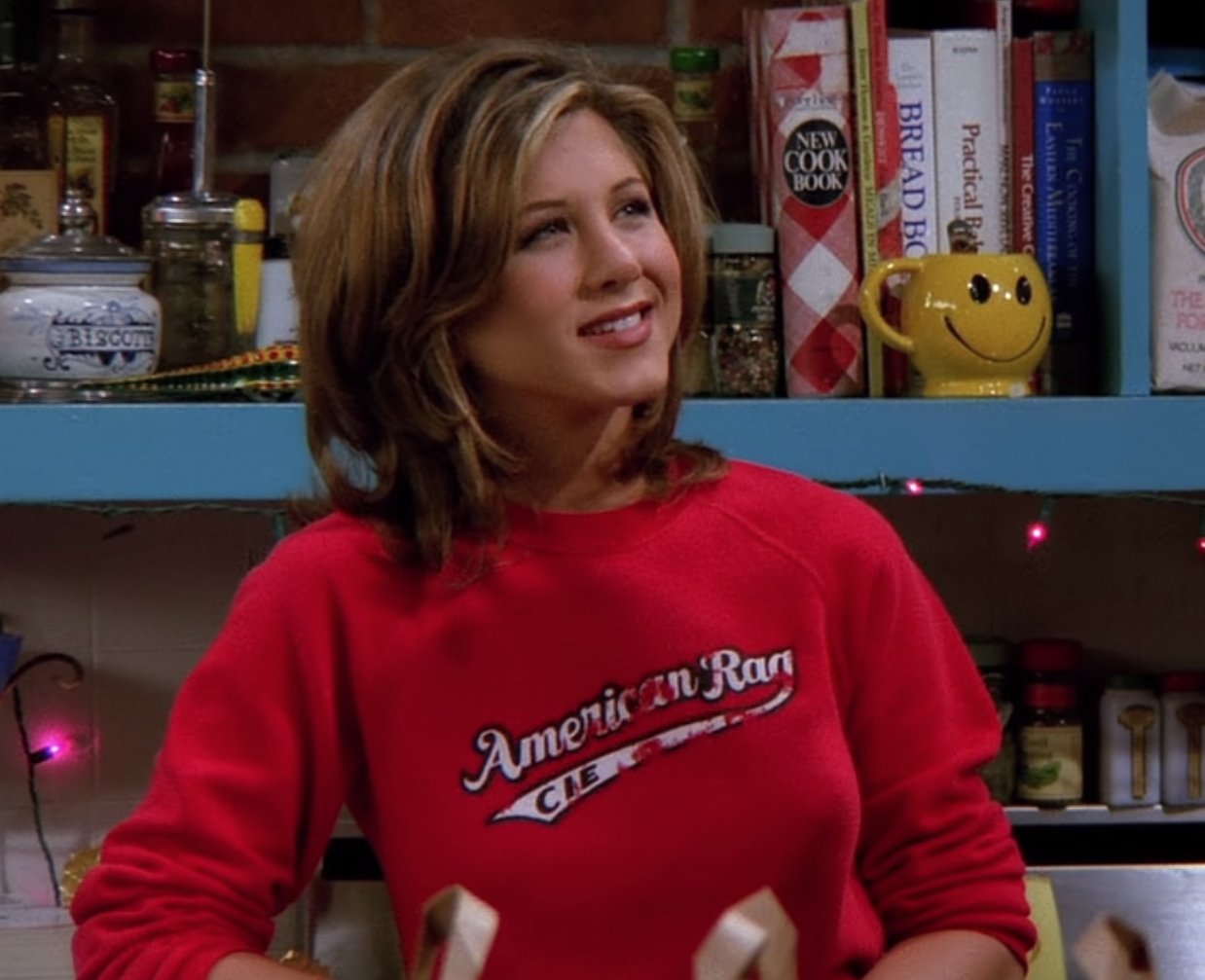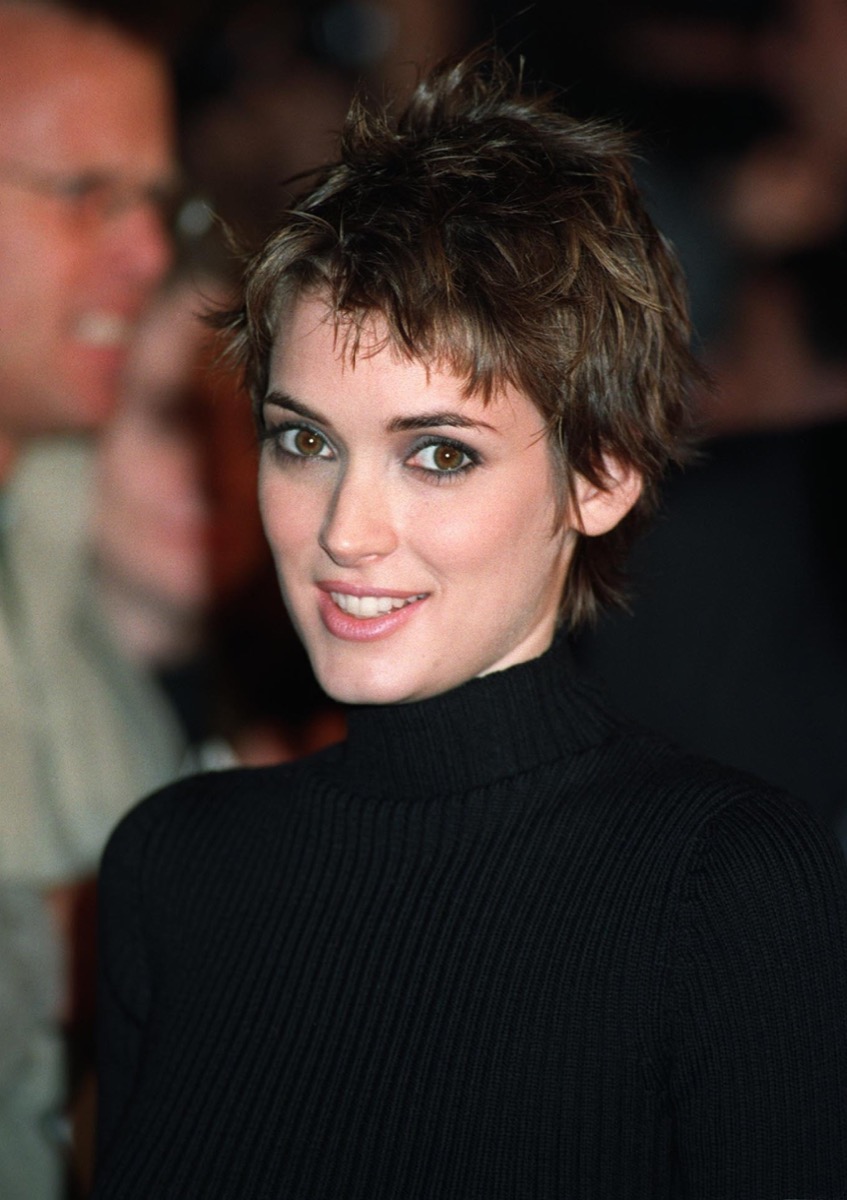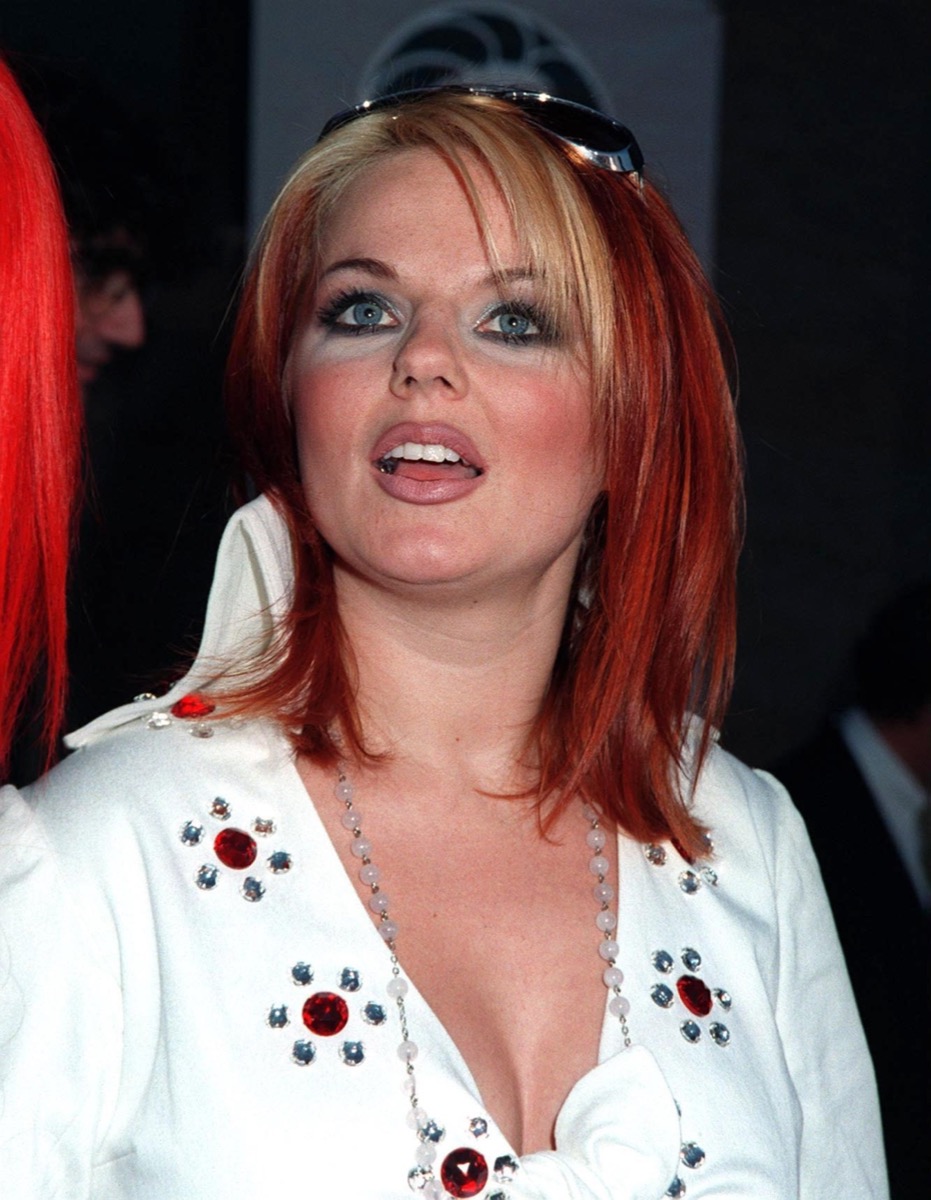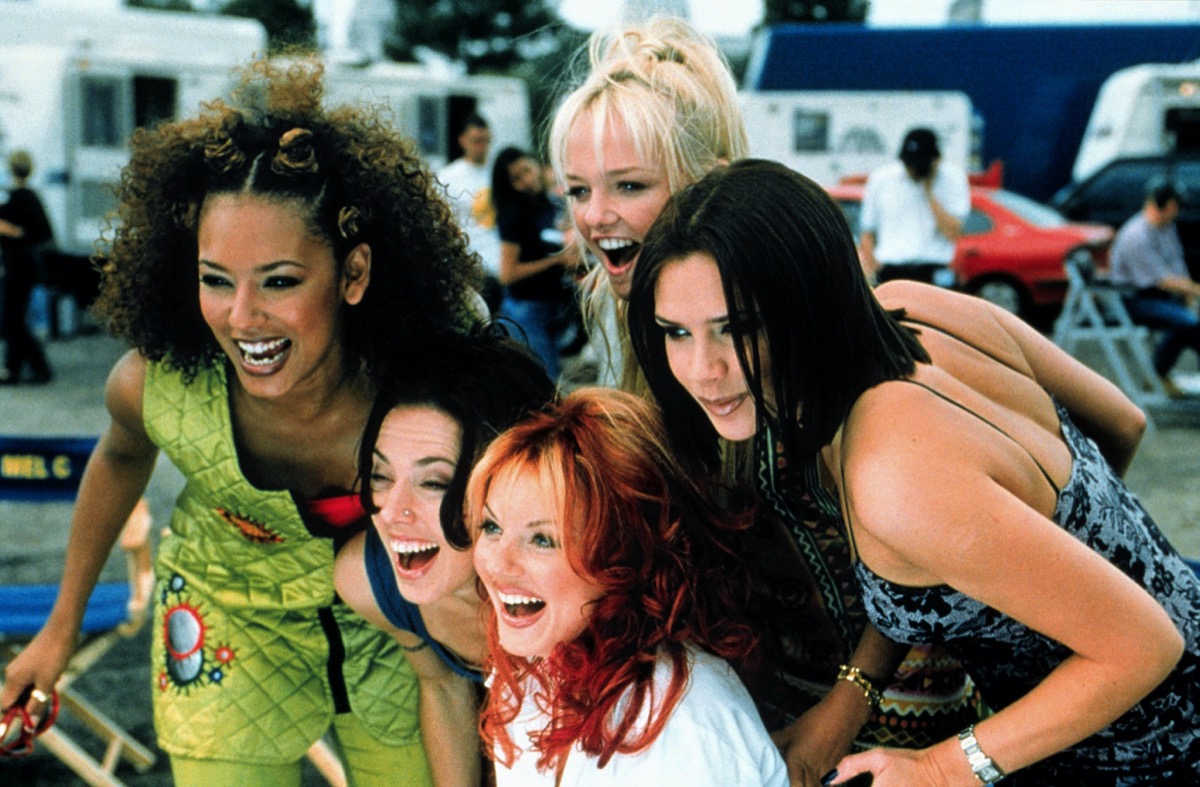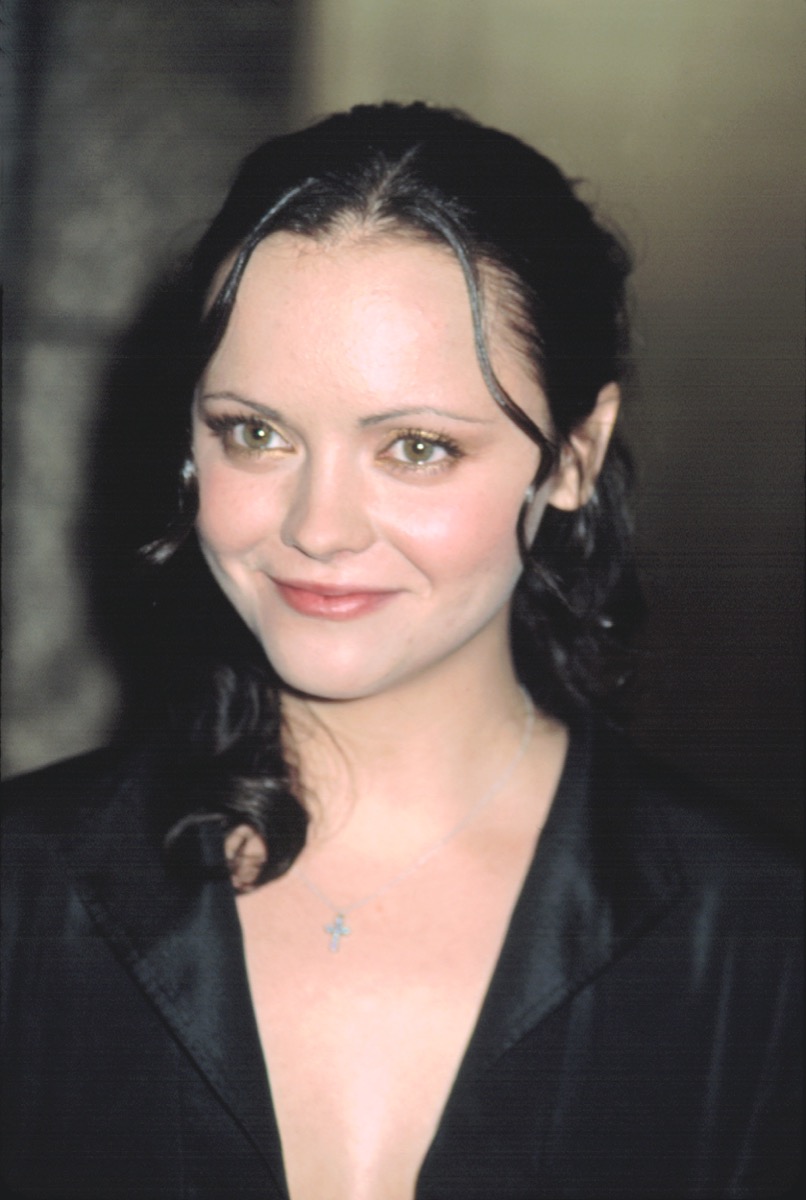In 1940, the omelet fold hairstyle rose to prominence when golden girl Gene Tierney rocked it in one of the year’s biggest movies, The Return of Frank James. The retro updo could be casual or fancy and formal, depending on the outfit and accessories you paired it with. And for more blast-from-the-past looks, check out these 24 Celeb Red Carpet Photos From 1990 You Have to See to Believe. In the early 1940s, the victory roll hairstyle was born purely out of practicality. During World War II, women were forced to go to work while their husbands were away, and this coiffed hairstyle kept their hair out of their faces. Femme fatale Veronica Lake is remembered for her glamorous hairstyle just as much as for her acting chops. She made the peek-a-boo look famous in her numerous film noir performances, like 1942’s This Gun for Hire. And for more celebrity nostalgia delivered directly to your inbox, sign up for our daily newsletter. In 1943, actress Lena Horne was a force to be reckoned with. She released five movies in that year alone along with the hit song “Stormy Weather”—and through it all, she rocked a soft updo that subsequently became one of the most popular hairstyles of the early ’40s. Nowadays, the pompadour haircut is more commonly associated with modish males. However, in 1944, Rita Hayworth made this style a female favorite when she donned it in the film Cover Girl. And for more insight into your favorite stars, discover The Biggest Star Who’s the Same Age as You. Head scarves were another practical style worn by the working women of the ’40s as a way to keep their hair off of their faces. And following the fame of the Rosie the Riveter movie in 1944, the look really took off. After the war ended, women transitioned from hiding their hair behind head scarves to showing off their deep side parts. This style was most notably made famous by Lauren Bacall in 1946’s The Big Sleep. The transition from 1946 to 1947 took hairstyles from deep parts to no part at all. Actress Lana Turner was a big proponent of this hairstyle, which she wore in one of her major film roles that year, Cass Timberlane. In the 1940s, women took their bangs and teased them into “bumper bangs,” which lifted the hair off of their foreheads into a more rolled style. Often they were upheld by pins, hats, or even flowers. Pictured here is Oscar-winning actress Barbara Stanwyck rocking the look. And for more celeb news, check out The Biggest ’90s TV Teen Idols, Then and Now.
Keeping hair off of the face was all the rage in the 1940s, and 1949 was no different. Sleek updos were the “it” look as the decade closed out, and actress Ginger Rogers (pictured here) was one of the most notable women who sported the style, like in her 1949 movie The Barkleys of Broadway. Elegance reigned supreme at the start of the 1950s and with it came the chignon, a sleek low bun popularized by the queen of class, Grace Kelly. In the early 1950s, fringe-covered foreheads were all the rage. Unlike the petite baby bangs and view-obscuring shag fringes that became popular later in the decade, 1951’s most popular look hit right at the eyebrow, framing the wearer’s face. By 1952, salons were reporting that three out of five women were requesting “The Poodle,” thanks to Lucile Ball and her hit show I Love Lucy. The look gathered tons of hair up top and was sleeker on the sides. After chopping off her locks to appear in her first film, Roman Holiday, which was released in 1953, Audrey Hepburn made the short, cropped hairstyle the epitome of fashion. By 1954, Marilyn Monroe was one of the most famous women on the planet and she inspired an entire generation to go for the blonde bombshell look. By the middle of the decade, Jayne Mansfield’s barrel curls became the definition of glamour. It was a lengthier, more styled version of Monroe’s look. Ponytails were always a functional hairstyle. But when Brigitte Bardot made her U.S. film debut in 1956 in Helen of Troy, she managed to make this mundane style a stand out. Soft and textured hair was a staple in the 1950s, but actress Elizabeth Taylor made it seriously en vogue as she dominated the silver screen in the middle of the decade. Actress Dorothy Dandridge, a revolutionary African-American figure in Hollywood, rocked this curly, short cut that became popular in Italian cinema, hence its name. And after she opened at the Mocambo nightclub in West Hollywood, the style earned quite a few admirers in the 1950s. Just as the decade came to a close, the most famous women in the world, like Tammy Wynette and Jackie Kennedy, were donning big bouffants that were soon on women everywhere. As a new decade rolled in, hairstyles started to veer away from the super polished, sleek ‘dos of the 1950s. Instead, the ideal look was the perfectly imperfect stacked updo, made famous by Bardot.ae0fcc31ae342fd3a1346ebb1f342fcb Serving as the precursor to the mod look, the pageboy became the hairstyle in 1961. Actress Hayley Mills rocked the style—a round top with smoothed-under tips—for her role in The Parent Trap that year. The Beehive was first created by Margaret Vinci Heldt for Modern Beauty Shop Magazine in 1960, when the editors pushed her to think outside of the box to find the next innovative hairstyle. Eventually, the style became ubiquitous with 1960s hair, largely thanks to Hepburn’s picture-perfect one in Breakfast at Tiffany’s, which opened at the end of 1961. Whatever Bardot did with her hair, the world copied. Such was the case with her heavy, middle-parted bangs that were everywhere throughout the ’60s. When Bewitched made its debut in 1964, the flipped bob Elizabeth Montgomery sported became a major hit along with it. Even Jackie Kennedy made this her signature ‘do in the early ’60s. In the mid-’60s, hairstylist Vidal Sassoon invented the geometric five-point cut. This simple hairstyle was an attempt to liberate working women from seriously time-consuming styling, according to Elle. “Women were going back to work, they were assuming their own power. They didn’t have time to sit under the dryer anymore,” Sassoon told the Los Angeles Times of the look decades later. This hairstyle would eventually epitomize the hippie culture of the 1970s, but it’s perhaps best embodied by Cher, who became a style icon during the middle of the decade thanks to her hit with Sonny Bono, “I Got You Babe.” Before flat irons were invented, women used clothing irons to remove any kinks or curls from their hair to attain this desired look. British supermodel Twiggy, another style icon of the 1960s, popularized the pixie cut with a deep side-part. This hairstyle eventually came to epitomize the mod look, along with Sassoon’s five-point cut. Though you may picture The Beatles when you think of the mop-top hairstyle trend, women also sported this look. Case in point: English musician and actress Julie Driscoll, who rocked the mop-top style in the latter part of the decade while she covered some of the biggest hits of the century by Bob Dylan and more. By the end of the ’60s, women everywhere were beginning to tire of their pixie cuts. The style grew out to become more of an asymmetrical bob that started to crop up everywhere, like on Diana Ross (right) here. Marcia Brady, portrayed by Maureen McCormick, first graced TV screens with her long, straight locks in 1969, and her middle part became the style to emulate. This hairstyle gained even more popularity when Ali MacGraw paraded her straight locks around in Love Story, which came out in 1970. Actress Jane Fonda’s “Shag” haircut in the 1971 film Klute challenged women to chop off their long hair in favor of a more unisex ‘do. If you flip through any yearbook from the 1970s, you’ll likely find this cut on more than a few women during that time period. With disco reigning supreme, afros and natural hair in general became all the rage in the early ’70s. And there’s perhaps no female afro more iconic than Pam Grier’s as Foxy Brown. The actress garnered millions of fans for her coiffed bravery. Actress Cicely Tyson made TV history when she sported cornrows on the television drama East Side/West Side in the 1960s. She continued to push boundaries with the look over the years. A decade later, when she garnered critical acclaim for her role in Sounder, she donned those iconic cornrows on multiple magazine covers, like Essence and Jet, helping the style gain mainstream popularity. Musician and icon Joni Mitchell—along with several other female folk musicians of the 1970s—popularized bangs that were even longer than Bardot’s version in the ’60s. They were also less perfect looking, since they were all about the natural, bohemian aesthetic. While many women at this point preferred straight hair or waves, supermodel Beverly Johnson started a trend that would resurface later on in the ’80s: voluminous curls. In August 1974, she became the first African-American model to grace the cover of Vogue and soon enough, she was the “it” girl whose hair women everywhere emulated. When she won the gold medal in 1976, Olympic figure skater Dorothy Hamill’s haircut, which she’d gotten just before the games, became its own kind of icon. “The night before I left for Europe, I had my hair cut by the world-famous hairstylist Suga,” she wrote in her autobiography A Skating Life. “My dad had written him a letter, asking him if he could cut my hair for the Olympics. He graciously agreed to do it, staying very late at his shop. Of course, I had no idea that this wedge style would become so famous. I just thought if I had to have short hair anyway, I might as well have something fashionable.” Charlie’s Angels premiered at the end of 1976, and it wasn’t long before Farrah Fawcett’s signature haircut made her arguably the most iconic hair model of the decade. Every girl yearned to have the same effortless layers cut into their own locks. According to InStyle magazine, Fawcett’s hairstylist Allen Edwards said “people were lining up down the street” for the style. Debbie Harry and her band Blondie were at the center of punk rock’s humble beginnings in the late ’70s. The band’s front woman featured a bleached blonde ‘do that helped make her an icon. At the close of ’70s, punk rock had taken over and the outrageous hair that came with it was seen as the ultimate act of style defiance. Musicians like Siouxsie Sioux would tease their hair and gather it in a wild way that proved the messier, the better. The wild punk style of the late ’70s got even louder in the 1980s and no one epitomizes the look more than Cyndi Lauper. Before she made a name for herself with “Girls Just Want to Have Fun” in the middle of the decade, she was a founding member of Blue Angel, which released their debut album in 1980. Though her solo career is what made her a household name, even at the turn of the decade, she was sporting the kind of colorful, out-there hair that was all the rage. And for more musicians you once loved, check out these One-Hit Wonders Every ’70s Kid Remembers. In the 1980s, there was no woman more fashionable than Princess Diana, especially in 1981, the year of her wedding. Her short hair and side-swept bangs became style staples throughout the decade, with women everywhere sporting this look. Brooke Shields had captivated a huge audience with her cool, youthful girl-next-door aesthetic in the early 1980s. Her naturally wavy hair made a big impression on girls and women around the country, prompting a move towards the “less is more” realm of self-expression. As with nearly every other trend in the ’80s, bigger was better when it came to hair. When Jennifer Beals sported her natural ringlets in Flashdance in 1983, the effortless style instantly became the definition of sexy. One of the most loathed hair trends officially gained its legs beginning in 1984 when celebrities like Cher and Joan Jett were unafraid to rock the short-on-top, long-in-the-back look. Madonna iconically tied her hair up with a scarf in the 1985 movie Desperately Seeking Susan—and soon, women everywhere were walking around looking like gifts, with big bows tied atop their heads. A beauty staple in the ’80s was Aqua Net, a hair spray used to keep big hair in line. By 1986, if you weren’t styling your sparse bangs with Aqua Net—so that they couldn’t move an inch—then you definitely weren’t sitting at the cool table. Those without natural curls or volume in the 1980s used a crimper, a tool that made your hair look like crinkle-cut French fries. Even sleek hair maven Demi Moore rocked crimped hair in the mid-’80s with her role in St. Elmo’s Fire. And if you got tired of using a crimper, then you probably went for a perm, which could make even the finest hair big and curly. During the late ’80s, perms—not diamonds—were a girl’s best friend. The process, which took hours at the salon, was all the rage. How else do you think Cher went from sleek and straight to those huge ’80s heights? From the late ’80s through the ’90s, everyone was obsessed with the scrunchie, which held any type of hair. And really, what’s not to love? They don’t tug on your hair and cause breakage as much as the average ponytail holder and they come in a variety of appealing prints and colors. Even little Michelle Tanner rocked them on Full House. At the beginning of her career, “Vision of Love” singer Mariah Carey made the general public incredibly envious of her long, bouncy curls. Her hair was a far cry from the labored-over looks of the late ’80s. It made a statement and proved that “cool” didn’t have to come with a bunch of processes and hot tools. Model Cindy Crawford was truly the face of fashion in the early 1990s. When she showed up to the 1991 Oscars with her then-boyfriend Richard Gere with big bouncy waves, the retro look suddenly became stylish again. Grunge influenced everything in the ’90s, and hair was no different. No woman embraced this look more than Courtney Love, whose tousled and distressed mane became the thing of rock legends. The more it looked like you just got out of bed, the better. When pop icon Janet Jackson crossed over to acting in 1993 and made her big-screen debut in Poetic Justice, she sported box braids, which became incredibly popular. And other pop artists like Brandy followed suit as the ’90s went on. Jennifer Aniston’s haircut on the television show Friends was so popular that it was simply called “The Rachel,” named after her character on the show, which premiered in 1994. It was the first time since Fawcett’s Charlie’s Angels look that a TV character made such waves (pun intended). By the middle of the decade, ’90s fashion icon Winona Ryder chopped off her hair, inspiring a new kind of pixie cut. Hers was a more tousled, imperfect version of the original and soon, it was everywhere. Who could forget Spice Girl Geri Halliwell’s face-framing bleached streaks amid her sea of red hair? During the middle of the ’90s, unnatural highlights were surprisingly stylish. Unlike the more subtle color techniques of the 21st century, these were blocks of intense color. This traditional African hairstyle also hit the mainstream thanks to a Spice Girl. With her half-up, half-down look, Mel B—AKA Melanie Brown (left)—brought this look to the forefront. And soon, white artists like Gwen Stefani and Björk were culturally appropriating them. When Britney Spears came on to the scene in 1998 with her hit single “…Baby One More Time,” her debut music video created a fashion frenzy. Suddenly, teens and even adult women were donning pigtails similar to the ones Spears sported in her video. While there isn’t a name for this look, per se, everyone at the close of the 20th century knows that your hair wasn’t complete unless there were two pieces hanging down in front of your face. Take the piece-y look of “The Rachel,” those aforementioned hanging strands, and throw in some butterfly clips and you’ve got the perfect hairstyle for the turn of the century. This look, as Mary-Kate and Ashley Olsen sported on their show Two of a Kind, might be the most recent hairstyle on this list, but it’s also probably the most cringeworthy. Truly, what were we thinking?
